Concordia Course Web Sites
Search results: 248
ACCO 455: FRAUD EXAMINATION
This course examines the principles of fraud prevention, detection and deterrence. Topics covered may include the psychology of the fraudster, cash receipt schemes, cash disbursement schemes, non-cash misappropriations, corruption, fraudulent financial statements, fraud risk assessments, investigation techniques and interviewing witnesses. This course may also examine auditors’ responsibilities towards fraud, the evaluation of internal controls and important pieces of legislation such as the Sarbanes-Oxley Act and the Criminal Code of Canada. Finally, the ethical aspects associated with fraud are discussed. Class sessions consist of lectures and real-life fraud case/video discussions from various sources, including the Association of Certified Fraud Examiners (ACFE).
Company officers are responsible for proper design, periodic assessment of the effectiveness, and disclosure of material deficiencies in internal controls to external auditors and the audit committee. They are also required to disclose to auditors and the audit committee any fraud, whether material or not, that involves management or other employees who have a significant role in the company’s internal controls. This course is useful to Business Students as it focuses on the role of management in the prevention, detection and disclosure of occupational fraud. This course also helps Accounting Students to recognize and analyze the red flags of fraud during regular audit missions, and to explain how allegations of fraud should be investigated and resolved.
This course is led by Dr. Peltier-Rivest who conducts research and teaches courses on anti-fraud topics at JMSB. Dr. Peltier-Rivest's research has been published in such journals as the Journal of Financial Crime; the Journal of Forensic Accounting; Fraud Magazine; the Journal of International Accounting, Auditing and Taxation; Advances in International Accounting; and the Quarterly Journal of Business and Economics. He has also presented his research at various international conferences and has served as an external advisor on anti-fraud matters, including for the Office of the Auditor General of Canada.
Dr. Peltier-Rivest received his Master’s Degree in Accounting (M.Acc.) from Florida State University in 1993. He earned his Ph.D. in accounting & finance from the same university in December 1996. He obtained the Certified Fraud Examiner (CFE) professional designation in 2005. In addition to his contributions as Professor, he worked as Executive Director of the Centre for Academic Leadership for nearly two years. He also served as Associate Dean, Academic Relations, for almost two years and as Chairman of the Department of Accountancy for nearly six years.
- Teacher: DOMINIC PELTIER-RIVEST
Course Overview
This PhD level seminar is designed to familiarize students with quantitative research methods and techniques that are used in various fields of management (e.g., organizational behavior, human resources management, strategy, entrepreneurship and so on). The emphasis of this course is on how to design and evaluate quantitative research studies. The course will cover foundational, as well as more advanced, issues in quantitative research methods. This course does not cover qualitative research methods, as these are covered in depth in other courses in the joint Doctoral program. This course also is not a statistics course, but we will talk about some of the statistical decisions that need to be made in quantitative research and about how to align research goals, with research methods and corresponding data analyses. Major topics in this course include the notion of constructs, reliability and validity in measurement, scale development processes, quantitative research designs, data sources and sampling considerations, types of associations among variables (linear, curvilinear, mediation, moderation, and so on), levels of analysis, meta-analysis, and research ethics. By learning about the research process, students should acquire the knowledge required to evaluate, review, and critique published (and unpublished) quantitative research. The overarching goal of this course is to help students become well-informed producers, readers, and reviewers of organizational research.
- Teacher: TRACY HECHT

RESPECTING DIVERSITY IN HUMAN RELATIONS
Examines the role of interconnected identity‑related differences, such as age, culture, disability, ethnicity, gender, geographical location, health status, history, language, power, race, religion, sexual orientation, social class, and privilege in human relationships and human systems. Students learn about histories of oppression and marginalization in Canada, theories of diversity and difference, as well as the impact of social justice movements and being and becoming an ally. Students are given opportunities to develop critical thinking and analytic skills and respect for difference and diversity.
Time: Wednesdays: 11:45am - 2:30pm
Location: VE 226
Instructor: Michael McCarthy (he, him)
Email: michael.mccarthy@concordia.ca
Office Hours: By appointment (virtual or in-person)
TA: Abdullah Jatal (he, him)
Email: abdullah.jatal@mail.concordia.ca
- Teacher: MICHAEL MCCARTHY
- Teaching Assistant: Abdullah Jatal
AHSC 319/01 (Fall 2025): OLDER ADULTHOOD
This course explores developmental change patterns and differences among people in older adulthood. Topics include retirement and pensions, concepts of health, fitness, well-being and models of health care, housing and transportation, leisure, family and social relations, ethnicity and aging, loss and grief, death and dying. Designed for persons interested in working with older adults, the course fosters awareness of myths, stereotypes and ageism, and emphasizes an attention to community social support and interventions which are enabling.
![]()
- Teacher: FAYE ASSEE
- Teaching Assistant: Emma Thomson
AHSC 385/01 (Winter 2025): SOCIAL PSYCHOLOGY OF LEISURE
- Teacher: WILLIAM HARVEY
AHSC 640/01 (Fall/Winter 2024-25): FACILITATING SOCI JUSTICE/EQUI
- Teacher: EMILY Y CLARE
- Teacher: Tina Shah
- Non-editing teacher: CÉDRIC JAMET
AHSC 640/01 (Fall/Winter 2025-26): FACILITATING SOCI JUSTICE/EQUI
- Teacher: EMILY Y CLARE
- Teacher: Tina Shah
ANTH 212/A (Winter 2025): LINGUISTIC ANTHROPOLOGY
This course is an introduction to formative debates and major contemporary topics in linguistic anthropology, in which students investigate the many-sided relationship between language, culture, and society. The first half of the course introduces students to foundational disciplinary concepts and concerns, including the role that language plays in influencing thought and perception; the role that cultural ideas about language and communication play in shaping how people use and understand language; the multifunctional quality of language and its importance as a medium of communication, identification, and action; and the ways media technologies shapes a language’s use, circulation, and reception. The second part of the course covers major areas of concern in contemporary linguistic anthropology, including language contact and creolization; language learning, socialization, and (non)-acquisition; language, gender, and sexuality; monolingualism and multilingualism; language activism and social justice; and language and cognition beyond human contexts.
By the end of the course, students will be able to recognize and deploy major terms and concepts in linguistic anthropology, as well as to identify and describe important debates in the field. Students will develop a basic familiarity with disciplinary research methodologies. Additionally, students will acquire intellectual tools to critically discuss and analyze commonplace assumptions and ideas about language, to recognize the influence of powerful institutions like schools, states, and markets in shaping these ideas, and to better understand language’s role in meaning-making and social agency.
- Teacher: PATRICK LEWIS
- Teaching Assistant: ENRICA AURORA COMINETTI
ANTH 303/A (Winter 2025): INDIGENOUS RESURGENCE
- Teacher: EMANUEL P LOWI
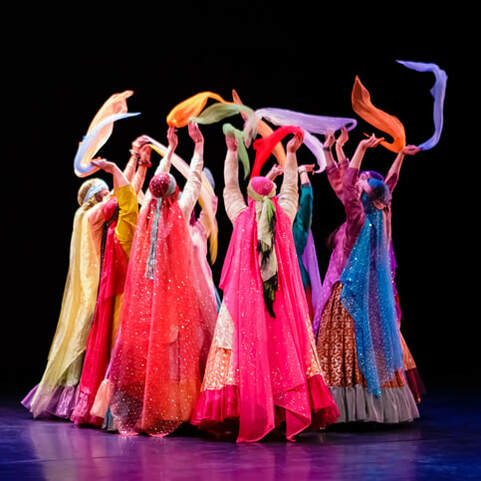
ANTH 322/A (Fall 2025): POPULAR CULTURE/MIDDLE EAST
- Teacher: NIMA JANGOUK
ANTH 343/AA (Winter 2025): MEDIA ETHNOGRAPHIES
- Teacher: ERIN ELIZABETH LYNCH
ANTH 363/AA (Fall 2025): LAW AND SOCIETY
- Teacher: JOHN HOWES
- Teaching Assistant: Whitney Sky Downing
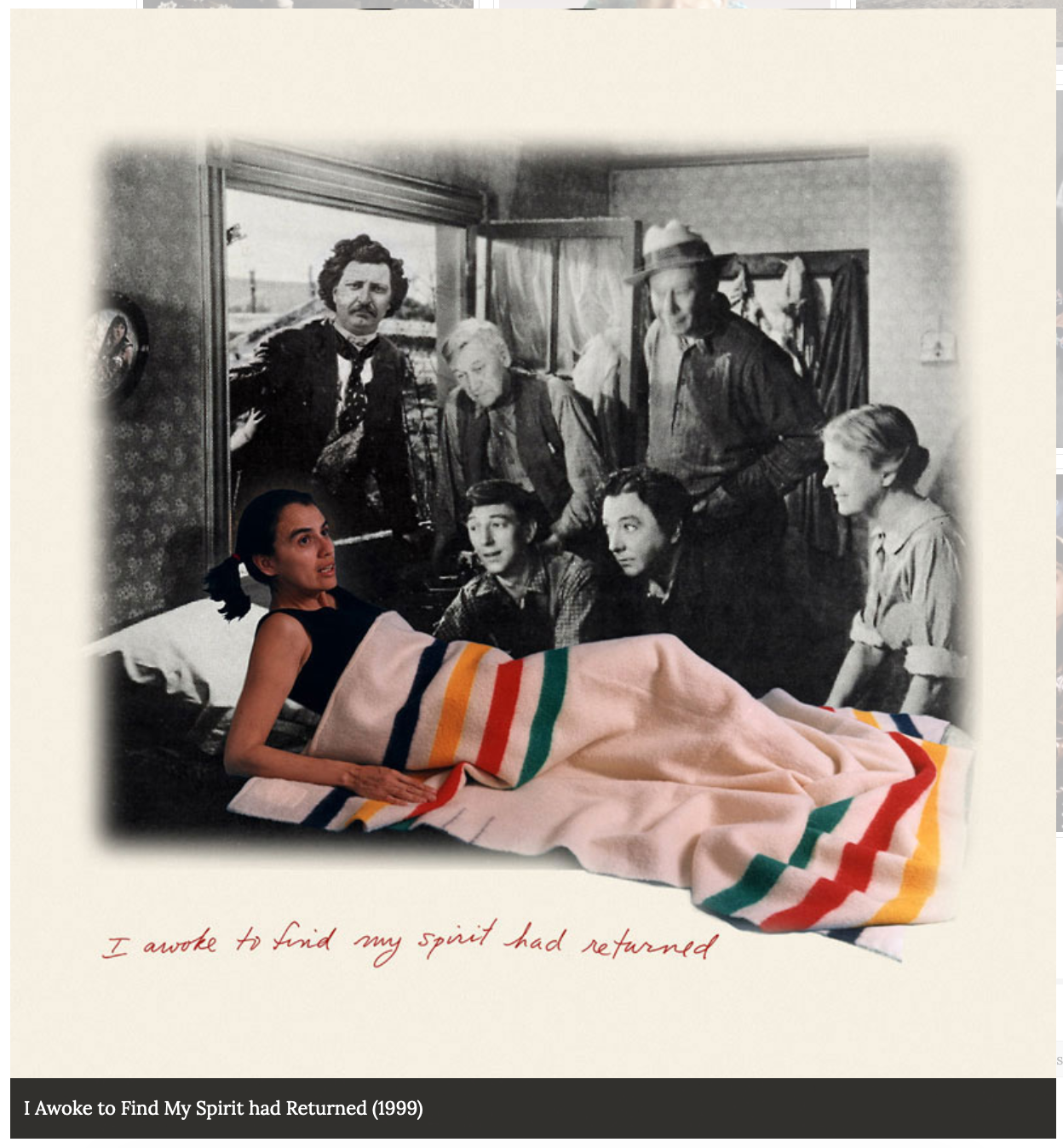
ANTH 405/A (Winter 2025): CULTURAL IMPERIALISM
- Teacher: ANNA SHAH HOQUE
ANTH 449/AA (Fall 2025): THE CULTURE OF TOUCH
- Teacher: CONSTANCE V. CLASSEN

APLI 623/AA (Fall 2025): Sociolinguistic Aspects of Bilingualism and Multilingualism
- Teacher: PAVEL TROFIMOVICH

Welcome to ARTE 330/AA (Winter 2025): INTRODUCTION TO COMMUNITY ART EDUCATION
Course Description
The course investigates the various issues and concerns related to community art education. Students develop skills in assessing community needs. After observation and studio research, students develop and propose an art education curriculum for a specific community setting or population. This course includes a practicum component.
Course Objectives
● Cultivate our identities, values, sensibilities and methods as artist-educators within a community of practice.
● Investigate “what makes a community” alongside inclusion, engagement, participation and collaboration questions.
● Explore different approaches to engaging communities through art education in local and international contexts.
● Gain first-hand experience in art teaching through peer-to-peer learning and community-based internships.
● Understand how to develop and implement lesson plans that are meaningful to the communities concerned while integrating our unique artistic voices.
● Engage in open and critical dialogue regarding social, ethical and political concerns while reflecting on our biases/limitations.
- Teacher: JENNIFER WIEBE
- Teaching Assistant: Elizabeth Dovolis
- Teaching Assistant: Christina Alexa Miranda
- Teaching Assistant: Nicholas Nylen
- Teaching Assistant: Reza Sedighiankashi
- Teaching Assistant: Regan Shrumm
ARTE 340/AA (Winter 2025): ARTE FOR ADOLESCENTS/ADULTS
COURSE DESCRIPTION
Prerequisite/Corequisite:
Students must have completed 24 credits in the Major in Art Education or the Specialization in Art Education – Visual Arts. prior to enrolling.
Students are introduced to theories of adolescent and adult learning, and how these are practised as teaching methods. Students learn about different types of group management and support techniques appropriate for adolescent and adult students. The course presents ways to effectively build relationships with learners over the age of 13, as well as strategies to plan and deliver programming in community settings or curriculum in school settings.
COURSE OBJECTIVES
Students will explore theories, principles, methods, media, and materials for teaching adolescents and adults with the arts. Through process-oriented experiences, students will engage in creative strategies to foster self-expression, critical thinking, conceptual understanding and personal experiences.
LEARNING OUTCOMES
By the end of this course, students will:
· Create artworks that express aesthetic, conceptual, and personal ideas.
· Explore storytelling through identity, culture, and community-based art.
· Design art-making activities for adolescent and adult learners.
· Reflect critically on their own and others’ creative practices.
· Collaborate effectively on inclusive and co-creative projects.
· Address environmental and social issues through sustainable art practices.
· Use art to create engaging and meaningful learning experiences.
· Respond to contemporary social and cultural issues through artmaking.
- Teacher: MARIA EZCURRA LUCOTTI
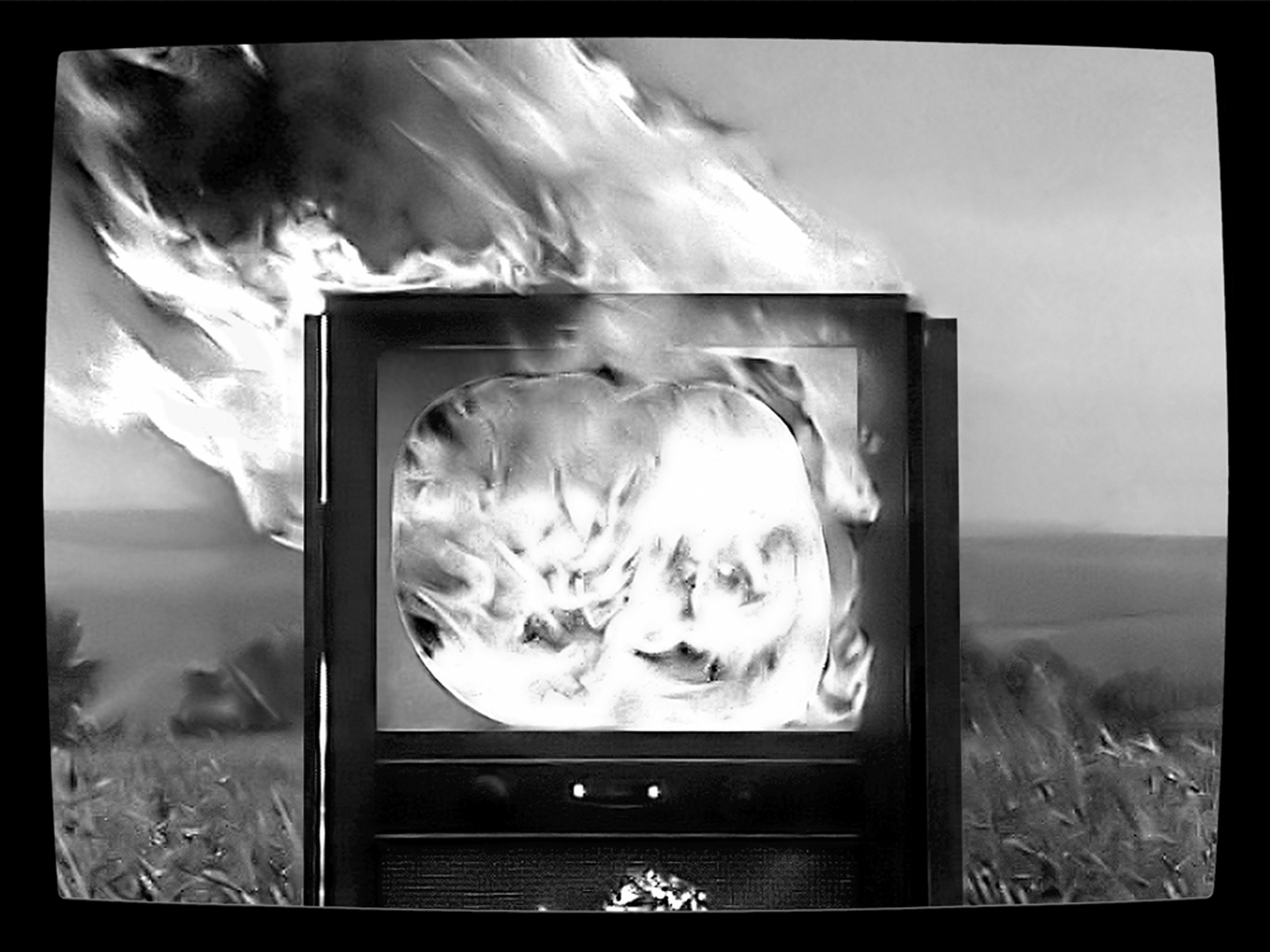
ARTE 354/2 Time-based Media
Fall 2025
TV Interruption Piece, David Hall 1971
Instructor: Aaron Pollard (he/him, they/them)
Independent interdisciplinary artist and cultural worker
Thursdays 5:45pm - 9:45pm
EV2.645 undergraduate studio (with punctual access to the EV5.709 computer lab)
Department of Art Education
Concordia University
Contact Information
Email contact: aaron.pollard@concordia.ca
Office Hours: By appointment only. Please send me an email to fix a time for us to meet.
Territorial acknowledgement:
I would like to begin by acknowledging that Concordia University is located on unceded Indigenous lands. The Kanien’kehá:ka Nation is recognized as the custodians of the lands and waters on which we gather today. Tiohtià:ke/Montréal is historically known as a gathering place for many First Nations. Today, it is home to a diverse population of Indigenous and other peoples. I respect the continued connections with the past, present and future in my ongoing relationships with Indigenous and other peoples within the Montreal community.
For more information (pronunciation, history, rationale and FAQs), visit https://www.concordia.ca/indigenous/resources/territorial-acknowledgement.html
Calendar Course Description
Students develop proficiency in a variety of time‐based media, including video and multi‐media
installations that are suitable for school or community art education programs. Students
investigate related approaches to teaching and curriculum.
NOTE: Students are expected to have basic computing skills or to have completed INTE 290 before registering for this course. Students who have received credit for ARTE 430 may not take this course for credit.
What is time-based media?
Time-based media is a term that encompasses artworks that offer an experience over a passage of time or over a specific duration. The term media refers to a way of doing something. Within contemporary cultural discourse, the word media often refers to the mechanical (print, photography, phonograph) or electronic reproduction of text, imagery or sounds (video or audio).
Within visual arts, “mixed media” is a term often used to describe installation practices that combine multiple traditional disciplines, such as painting, sculpture and drawing. Mixed media combining static objects will not be a focus of this course. However we will be studying practices that mix media where there is a time-based element to some or all of the components.
Multimedia refers to a wide set of electronic and digital practices, often but not always disseminated online. We will look at an array of works and practices that fall into the multimedia category.
What is time-based media for the purposes of this course?
For ARTE 354 this semester, we will focus on various forms of digital electronic media and, on occasion, study examples of legacy, analog and mechanical forms such as cinema and analog audiovisual formats and tools. Our readings and discussions will cover a wide array of forms, including Audio, Video, Animation, Virtual Reality, Circuit-Bending, Robotics and Artificial Intelligence. Practical exercises and skill-sharing will be focussed on acquiring some basic toolsets that are easily adaptable to a variety of art education contexts. Due to the breadth of practices that comprise time-based media, this course is not intended to provide in-depth technical instruction. However the course will offer up best practices for video and audio recording, along with some instruction covering file management, the editing of sound and image, and some pointers concerning projection and live manipulation of audiovisual materials. Certain processes, such as virtual reality authoring or robotics, would simply be too time-consuming to teach within the scope of a survey course such as ARTE 354/2, though there will be some time to examine examples of these practices.
Detailed Course Description
This course is designed to develop your observational skills and to broaden your technical, artistic and pedagogical palettes across a variety of creative processes involving technology, space and time. Throughout this course, you will encounter various approaches to time-based media with an eye to their relevance and limitations within a diversity of educational settings. ARTE 354/2 encompasses experiential and sensorial artforms with a specific focus on mechanical and electronic reproduction, generation and/or amplification of sounds and images in a wide variety of forms and contexts. Through presentations, hands-on workshops, assignments, readings and discussions I will introduce you to an array of current and historical practices that deploy time-based media along with some ideological and cultural frameworks to contextualize them. I encourage you to share your perspectives on works that you encounter in and out of the classroom as you connect the dots between things that we discuss together and the immense cultural offerings found outside the university setting. Time-based media is as ubiquitous as it is labour intensive. We are all soaking in it every day and much of the media we consume is developed, owned and distributed by vast networks with access to resources that dwarf the capacities of individual artists and educators. While we will cover a diversity of ideas and approaches, this course is by no means exhaustive. I will hone in on certain practices that I find relevant to teaching art, that are accessible to students who may be relatively new to working with certain technologies, and that foster confidence in initiating and engaging with creative processes involving (mostly digital) technologies. As an artist, my aim is to offer up a perspective on works and ideas that resonate with me, that are foundational to my own practice and that seem pertinent to you, the group of students who will share this classroom with me over the next 3 months. Together as a group we will explore a wide array of approaches and ideas designed to foster curiosity and to crack open new avenues for learning. As individuals I encourage you to look for a particular process or form that resonates with your own artistic and teaching ambitions when you engage with both midterm and time-based media creation assignments.
Course Learning Objectives for Students
-
To gain perspective on various historical and contemporary artistic disciplines and practices that deploy time-based media.
-
To identify time-based media practices and techniques that resonate with you as a student, as an artist and as a teacher and to learn how to articulate why they are of interest to you.
-
To identify the strengths and limitations of particular time-based media tools and processes within an educational environment and to adopt strategies that address this for your teaching.
-
To acquire observational skills and analytical capacities that allow you to identify the impact of various forms of time-based media on the cultural sector and on society at large.
-
To develop working methods and technical skills that allow you to learn, practice and teach time-based media.
-
To adopt and adapt a set of best practices for file management along with the care and maintenance of equipment and tools (mindfulness is key here).
-
To gain insight into questions of authorship and copyright that are specific to the mechanical and electronic reproduction of sounds and images.
-
To recognize and foster joy for yourself and others in the process of making and teaching time-based media.
Student responsibilities
Attendance and promptness to all classes (Thursdays, 5:45pm - 9:45pm)
Regular engagement; includes
-
In-class responses and discussions
-
Solo and group in-class activities
-
Weekly sketchbook entries
On-time completion of all:
-
Readings/viewings/responses (see course schedule and Moodle)
-
Weekly e-sketchbook entries
-
In-class activities
-
Assignments (see course schedule for due dates)
Class Structure
The course is 4 hours. Most classes will be divided into 2 blocks:
-
The first 2 hours (in EV 2.645) are earmarked for in-class responses to readings, presentations, reviewing time-based media examples and discussions.
-
The 2nd 2-hour block is dedicated to practical exercises and studio time where we will also have access to the computer lab (EV5.709).
-
There are some classes that stray from this structure, notably classes 7, 9, 11 and 12. For class 7 (Oct 23) after reading break, we will maintain the 2-part structure however the first half of class will be dedicated to the presentations of your proposals for your time-based media creations. The second half will consist of a discussion of the weekly reading, along with an introduction to some performance practices. For class 9 (Nov 6) I am offering you a 4-hour block of studio time where we can work together in EV2.645 and in EV5.709 to help you advance with your respective final time-based media creations. Despite its loose structure this is a very important class. I encourage you to prepare for it carefully. Classes 11 and 12 are set aside for presentations and critiques of your final time-based media creations. Half of you will present your works during class 11 (Nov 20), the other half will present during class 12 (Nov 27). Each of you will be paired with another student. Those who present on Nov 20 will be responsible for leading the critique with one of your peers on Nov 27 and vice versa.
-
Class 10 (Nov 13) will maintain the 2-part structure though I have arranged for us to visit the Artist-run Centre, OBORO where we will attend a presentation by Nelly Mironchuck. For the second half of class, I will welcome you to my studio in the Mile End to offer you a look into the workings of a shared artist studio and to present you with a small sampling of things that I have been working on.
Be prepared to spend additional time outside of class time to complete assignments, readings, and to participate on the Moodle course site.
Academic Integrity
Consult Concordia ‘Academic Integrity’ for detailed definition of and penalties for plagiarism—these apply to you: http://www.concordia.ca/students/academic-integrity.html
Plagiarism
https://www.concordia.ca/conduct/academic-integrity/plagiarism.html
-
Avoid plagiarism in written submissions by providing citations for all your sources for quotations and ideas (ie: direct quotes and paraphrasing).
-
You must also cite sources for images as a caption (include original date of the work, title, etc. and the source of the photo).
-
Guides and samples for formatting citations are here:
Chicago: http://www.chicagomanualofstyle.org/tools_citationguide.html
MLA: http://library.concordia.ca/help/howto/mla.php
The most common offence under the Academic Code of Conduct is plagiarism, which the Code
defines as “the presentation of the work of another person as one’s own or without proper
acknowledgement.” (Article 19 a). This could be material copied word for word from books,
journals, Internet sites, professor’s course notes, etc. It could be material that is paraphrased but closely resembles the original source. It could be the work of a fellow student, a note, a comment or an answer to a question that the person next to you has written down. It might be a paper purchased through one of the many available sources or an answer to a question that you input into ChatGTP or another AI service.
Rule of thumb: Do not copy, paraphrase or translate anything from anywhere without indicating where you obtained it. (Source: The Academic Integrity Website)
Questions of plagiarism within the scope of ARTE 354/2
On a more personal note, I would simply point out that there is no shame in copying within certain contexts. There is a long tradition of copying within visual arts and, indeed, many other cultural practices. In fairness to yourselves and your classmates, it is important that you cite your sources and acknowledge when you have been copying, rather than pretending otherwise. In the case of writing for this class, I challenge you to try to write on your own terms, to try to assimilate and articulate ideas, rather than relying too often on citations or paraphrasing. Naturally, you may turn to spellchecks and other tools to help out in the editing process. I encourage you to do so. As your instructor, I am obliged to follow up and to alert the university administration if I encounter plagiarism or cheating. I would rather not be placed in the position of having to police anybody on this. At the end of the day, if you cheat, you are really just cheating your classmates. Moreover you are depriving yourself of the opportunity to learn something that may be important to your development as an artist and a teacher.
Attendance and Professional Conduct
Code of Rights and Responsibilities
All individuals participating in courses are expected to be professional and constructive throughout the course, including in their communications. Concordia students are subject to the Code of Rights and Responsibilities which applies both when students are physically and virtually engaged in any University activity, including classes, seminars, meetings, etc. Students engaged in University activities must respect this Code when engaging with any members of the Concordia community, including faculty, staff, and students, whether such interactions are verbal or in writing, face to face or online/virtual. Failing to comply with the Code may result in charges and sanctions, as outlined in the Code.
Content belonging to instructors shared in online courses, including,but not limited to, online lectures, course notes, and video recordings of classes remain the intellectual property of the faculty member. It may not be distributed, published or broadcast, in whole or in part, without the express permission of the faculty member. Students are also forbidden to use their own means of recording any elements of an online class or lecture without express permission of the instructor. Any unauthorized sharing of course content may constitute a breach of the Academic Code of Conduct and/or the Code of Rights and Responsibilities. As specified in the Policy on Intellectual Property, the University does not claim any ownership of or interest in any
student IP. All university members retain copyright over their work.
Langues officielles
Vous avez le droit de soumettre vos travaux écrits en français ou en anglais. Je serais ravi d'interagir avec vous en français et de vous aider à traduire les concepts dans la mesure du possible.
Code of conduct for ARTE 354/B
I expect you to be punctual and to attend classes. Please contact me if you are not able to attend class. I expect professional and constructive conduct from you. Participation is key. This includes active listening, respect and consideration for the points of view of others as well as a willingness to contribute your own observations to a given discussion, so that together we may all contribute to an inclusive, collaborative and mutually supportive learning environment.
Extraordinary Circumstances
In the event of extraordinary circumstances and pursuant to the Academic Regulations, the University may modify the delivery, content, structure, forum, location and/or evaluation scheme. In the event of such extraordinary circumstances, students will be informed of the changes.
Calendar (subject to minor changes throughout the semester)
Course Materials
Readings
There are no textbooks for this course nor is there a coursepack. I will place readings on reserve through the libraries where possible and I will upload them to the Moodle where necessary. Though I have a list of readings in mind for this course, I will be adapting it as the semester progresses. I will post each one within a reasonable time-frame.
Facilities
Along with access to the undergraduate studio, EV2.645. This class has access to the computer lab, EV5.709, from 6:45 to 9:45 on Thursdays.
Equipment, supplies and Software
I encourage you to bring your favorite tools with you to class, such as a phone for recording audio and video, laptops or other devices. If you do not have your own recording devices, or if you do not wish to use your own devices within class, you may borrow equipment from CDA. There are days when you will require additional equipment such as headphones. Check the calendar to find out what you will need for each class. I also encourage you to bring a dedicated notebook and pens. I have requested access to the Adobe Creative Cloud suite for the duration of this course. As part of the creative exercises and technical skills development in this course, I will offer you some pointers and best practices for recording audio and video using compact devices such as phones, cameras or audio recorders, along with introductions to certain facets of Adobe Creative Cloud. You may explore other software or tools for the purposes of your final time-based media creation with the understanding that it would require some self-directed learning.
Generative Artificial Intelligence
In this class, writing assignments and submitting outputs that contain incorrect information related to class concepts, inappropriate responses to assignment prompts, or details that you are unable to explain or discuss in detail is considered a misuse of GenAI.
If you decide to use GenAI for any assignments you must acknowledge how GenAI inputs were created by documenting your workflow as well as prompts used.
Department of Art Education Grading Criteria
“A+” (outstanding) is for demonstrating exceptional overall achievement in the required areas of understanding and /or skill. The work reflects student initiative and learning that far surpasses the basic assignment requirements.
“A” level grades (excellent) are for demonstrating excellent overall achievement in the required areas of understanding and /or skill, and also reflects student initiative and learning that goes well beyond basic assignment requirements.
“B” level grades (very good) are for work that fulfills all the components of the assignment and demonstrates very good competencies in all the required areas of understanding and skill, and/or some initiative and learning beyond the basic requirements.
“C” level grades (satisfactory) are for work that completes all the assignment requirements, and demonstrates satisfactory competencies in all required areas of understanding and/or skill.
“D” level grades (weak/minimum for pass) are for work that does not satisfactorily meet the basic assignment requirements and/or demonstrates a significant lack of competency in a required area of understanding and/or skill.
An “F” grade (failing) is for work that does not complete the basic assignment requirements, or demonstrates a serious lack of competency in a required area of understanding and/or skill.
- Teacher: AARON W. POLLARD
ARTE 398/AA (Winter 2025): SPECIAL TOPICS IN ARTE: The Material, Media, and Technological Cultures of Teaching, Learning, and Creative Practice.
This course explores public pedagogy, teaching and learning philosophies, and art making as expressed and facilitated by material and digital media technologies. Students will research and discuss case studies, and engage in simple media production to better understand the material and technological conditions associated to the histories, ideologies and pedagogical frameworks of art education. The second part of the semester will focus on technological strategies for enacting collective knowledge, for promoting diversity and inclusion in learning and co-creation in art making.
- Teacher: MANUELLE FREIRE
- Teaching Assistant: Hannah Jakob

ARTH 264/A (Fall 2025): ASPECTS/HISTORY CERAMICS
During the last three thousand years, ceramic tiles have performed the function of containing, cladding, and dressing buildings. However, in the twentieth century this rich history was largely eclipsed by modernist architecture’s rejection of ornament. Happily, it lingered on within non-Western practices and at the periphery of Western practices and discourse just long enough to become a force in late modern and postmodern expressions. This resurgence is evident by the wide variety of artistic approaches to ceramic tiles within the art, craft, and architectural communities, including the modernist works of Josef Albers and Claude Vermette, as well as postmodern examples that combine industry and craft, decoration, and concept. Turning to examples of tile forms, their glazed and relief decorative surfaces, sculptural variations, and applications to buildings from the first millennium BCE to the present, this course explores how contemporary Western ceramic tiles have revisited historical precedents. Specific historical tile productions this course covers include Islamic, Medieval, Renaissance, and later European and North American studio and industrial productions. Through their fabrication processes and original and present architectural spaces, we will consider these tiles within social, cultural and even political contexts. This interdisciplinary course looks to art and craft histories, anthropology and material culture and explores issues pertaining to heritage, decoration, orientalism, and the applied arts.
- Teacher: SUSAN SURETTE
- Teaching Assistant: YASEMIN EROGLU
ARTH 355/A (Winter 2025): STUDIES IN ARCHITECTURE: "Histories of the (Architectural) Profession"
“Histories of the Architectural Profession” is a history of architecture through the lens of the work of architects, examining themes of professionalisation, architectural firms, and actors in the building industry. We consider various social, economic, cultural, and technological factors that affected the conception and role of the architect. In the course, we explore what it has meant to be an architect in several time periods and regions in the Western world, considering the kinds of work architects do, and with whom – and how these have changed over time. The course especially focuses on the modern period in Europe and North America. Further, this course engages in historiography, where we will consider how scholars have addressed these topics, asking about their approaches, questions, and contexts to inform and develop your course papers.
- Teacher: KATRIN ZAVGORODNY-FREEDMAN
- Teaching Assistant: MEHRNOOSH ALBORZI
- Teaching Assistant: Mehrnoosh Alborzi
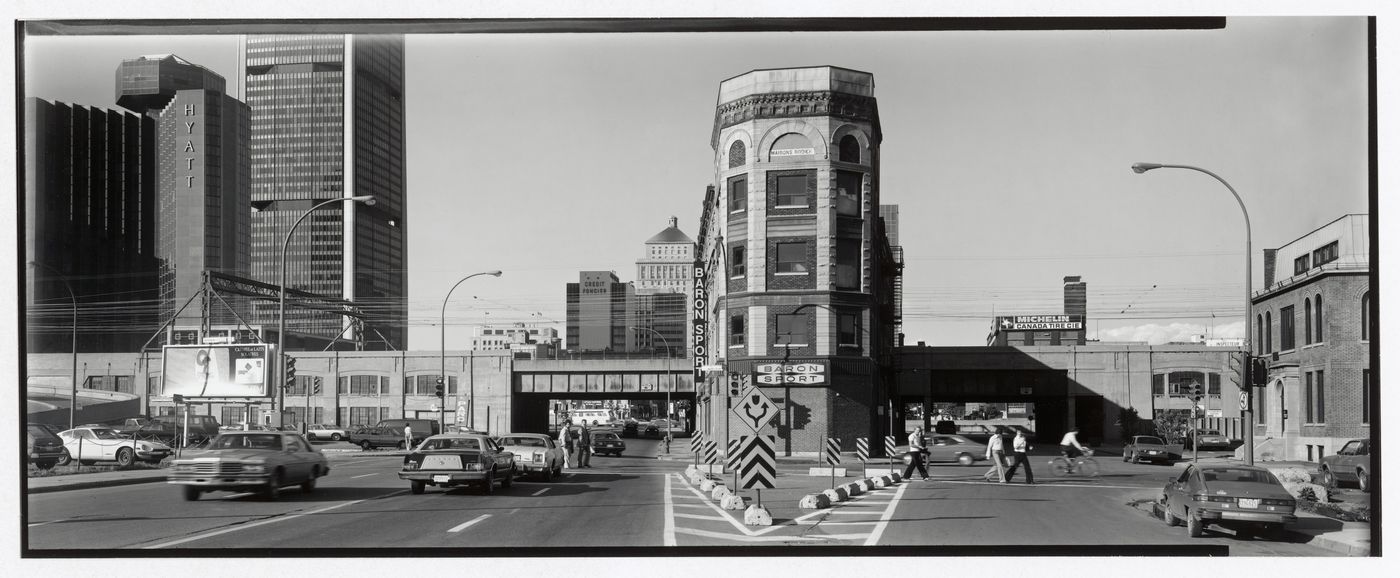
ARTH 374/A (Winter 2025): ARCH & URBANISM IN MONTREAL
A City Shaped by Its People
“Buildings make the city. They define the streets. They define the squares. They define where the parks are. They define how you live in a city, how you walk in a city, what you do in a city; they can make it very pleasant or very unpleasant.” – Phyllis Lambert
A wide-ranging survey of the architecture, urbanism, and landscape of Montreal and their significance in the political, social, and cultural context of the city throughout the 19th and 20th centuries. If “buildings make the city,” as stated by Montreal architect Phyllis Lambert, then who makes the buildings? Beyond professional architects and urban planners, this course will explore how regular citizens and their actions can shape the cityscape. We will pay attention to the ways that different forces—such as settler colonialism, immigration, economic booms and busts, gentrification, urban renewal reforms and popular movements—contribute to the transformations of Montreal and its buildings over time. We will look at architecture as a product of its specific local environment, and of global forces and historical conditions. Adopting an intersectional approach, we will consider how buildings can be read as sites of conflicting power relations, social dynamics, and collective action. As such, students will be asked to analyse buildings not as isolated objects, but as the result of political, cultural, social, and technological contexts of their time. Each week, as we discover different areas of Montreal, we will learn to recognize key architectural typologies, styles, and movements, and encounter both iconic sites and lesser-known figures. If you’ve ever asked yourself why Montreal looks and feels the way it does, a city of unique neighbourhoods defined by their buildings and the people who built them, this course is for you.
- Teacher: ARIÈLE DIONNE-KROSNICK
- Teaching Assistant: LOUISE LAPIERRE
ARTH 398/AA (Fall 2025): SPEC.TOPICS IN ART & SOCIETY
- Teacher: NURIA CARTON DE GRAMMONT LARA
ARTH 6600/A (Winter 2025): SOCIAL CONTEXTS OF ART/ARCHIT
- Teacher: STEVEN STOWELL
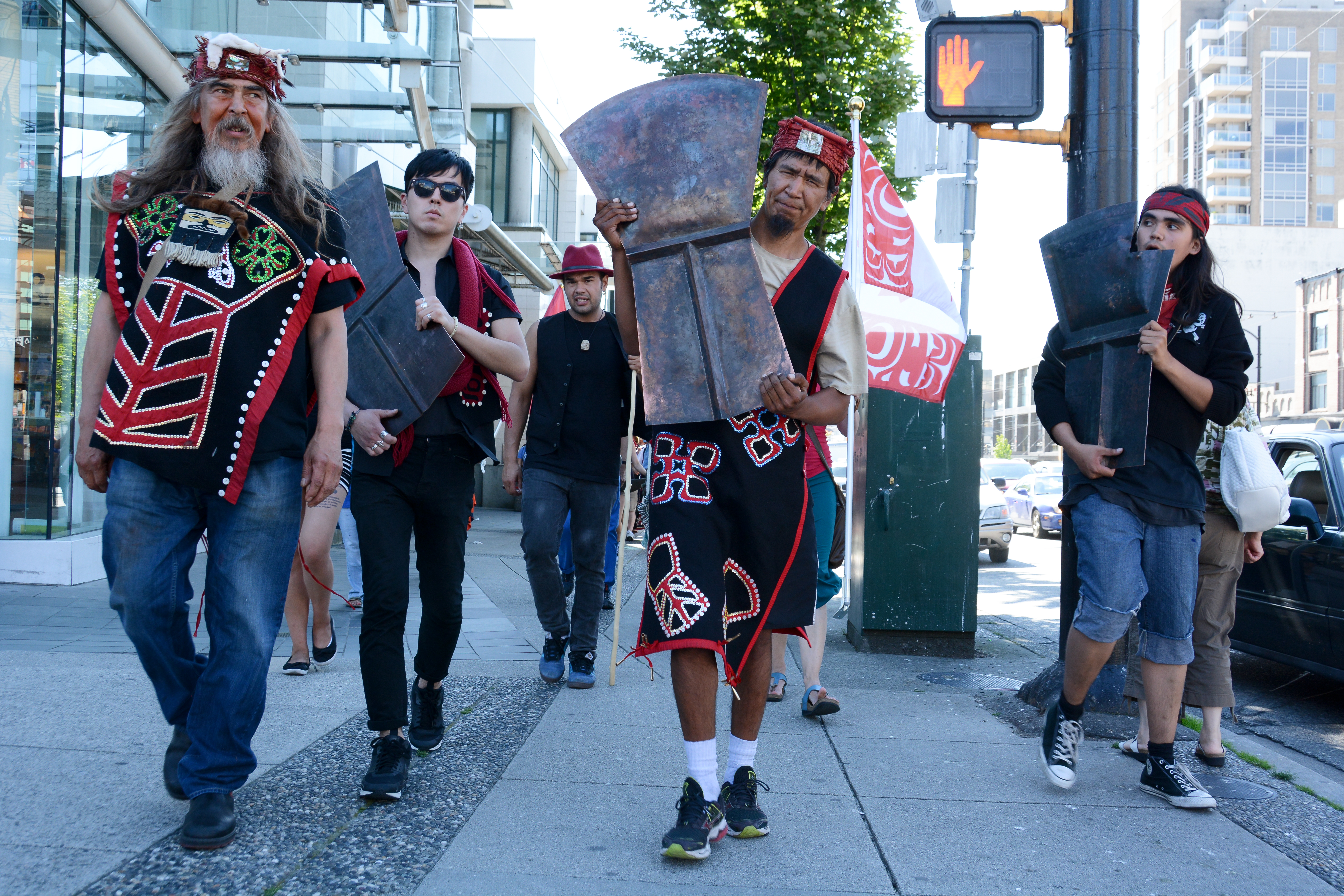
ARTH 663/A (Fall 2025): ART HISTORY & SOCIAL JUSTICE
Art History and Social Justice: Reparative Art Histories and Curating Difficult Knowledge
The course examines contemporary debates about the possibility of art, visual culture and exhibitions as forms of repair and reparation “in the wake” (Christina Sharpe) of the legacies of settler colonialism and transatlantic slavery. Specifically, it explores critical and creative writing, curatorial practice, exhibition-making, memorials, archives, and public pedagogy as reparative practices: as strategies for repairing individual and collective relationships, but also as modes for redressing colonial processes of dispossession, genocide, extraction and enslavement. The readings, films and exhibitions we will encounter throughout the course will present us with “difficult knowledge” (Deborah Britzman) that challenges our very sense of self and worldview—disrupting our positions as learner and teacher, reader and author, viewer and curator—by confronting us with histories “for which we may not be responsible, but nevertheless indelibly mark our present” (Warren Crichlow).
In taking up reparation as both our object of study and our goal in our practices as curators, educators, artists, citizens and activists, the course will examine the social and interpersonal dynamics of repair. What, for example, does repair look like in the museum? How has visual culture been complicit in structures of colonial violence and, conversely, how might it be used to make restitution, return or repair possible? How might aesthetic encounters help viewers to move past the resistances that accompany difficult knowledge, and offer the place and space to “think” the resonance of the past in the present? Surveying the historical, present and future contexts for reparations, with a special attention to anti-colonial and Indigenous perspectives, the course concentrates on the aesthetic and pedagogical dimensions of repair within the borders of the land now known as Canada.
Image caption: Kwkwaka’wakw hereditary chief and carver Beau Dick (left) carrying copper to the steps of the British Columbia legislature, 2013
- Teacher: GABRIELLE MOSER

ARTH 676/AA (Fall 2025): INTRO CURATORIAL PRACT&THEORY
CONCORDIA COURSE CALENDAR DESCRIPTION
An introductory examination of selected aspects of curating and curatorial practices.
COURSE SUMMARY
This seminar introduces students to the histories and theories of curatorial practices in various
local, national, and international contexts. It explores a range of historical, social, economic,
educational, ethical, legal, technological, and administrative issues concerning curation in
various types of institutional and non-institutional contexts. The course introduces both
theoretical and historical aspects of curatorial practice from an array of perspectives, such as
but not limited to Indigenous, Black, queer, feminist, and decolonial approaches, and
methodologies such as cultural analysis, institutional critique, and activist interventions, to cite
only a few examples.
LEARNING OUTCOMES
By the end of the course, students will be able to:
• Discuss how histories and theories of curatorial activity affect current practices within
multiple contexts: cultural institutions and organizations, the larger art world, and diverse
cultural communities.
• Take into consideration multiple perspectives, including Indigenous, Black, queer,
feminist, anti-oppression and decolonial approaches.
• Recognize diverse methodologies, including cultural analysis, critical race museology,
institutional critique, and activist interventions used in research-based curatorial
practices.
• To develop an independent research paper that interprets elements of curatorial frameworks and perspectives
• To present research orally in a clear and concise format
COURSE MEETING SCHEDULE
SEPTEMBER 2ND Course Introduction (VA-245)
SEPTEMBER 9TH Meeting at PHI at 5 PM for swell of spæc(i)es by Josèfa Ntjam 407, rue Saint-Pierre. Class ends at 8pm.
SEPTEMBER 16TH What do we talk about when we talk about curating? (VA-212-3)
SEPTEMBER 23RD Independent exhibition visits: MOMENTA x OPTICA | Éloges de l’image manquante; Paul Seesequasis, Indigenous Archival Photo Project: dévoiler le jeu du Créateur (Optica -5445 avenue de Gaspé # 106) and Raven Chacon, Place Where the Waters Crossed (Leonard and Bina Ellen Gallery – Concordia University – LB 165)
SEPTEMBER 30TH Guest – Camille Larivée, General and Artistic Director, M.A.I
OCTOBER 7TH Performative curating/curating performance
OCTOBER 14TH Reading week – no class
OCTOBER 21ST An introduction to Black curatorial histories
OCTOBER 28TH Exhibition review with short presentation (25%)
NOVEMBER 4TH No class – reading responses due for next week’s Think Tank
NOVEMBER 11TH Think Tank
NOVEMBER 18TH Curatorial activism: why do we do all this?
NOVEMBER 25TH Presentation Project (30%)
DECEMBER 2ND Get your notebook back in the lab (VA-212-3)
EVALUATIONS
10% Punctuality and regular weekly in-class oral participation (Q&A, comments, etc.)
15% Think Tank
25% Exhibition Review
20% Notebook evaluation
30% Curatorial Concern proposal (written component and oral presentation)
IMPORTANT DUE DATES
September 30th: Guest Lecturer – Camille Larrivée
October 17th: Deadline to submit required documentation to register with the Access Centre for Students with Disabilities and request exam accommodations for the fall 2025 final examination period
October 28th: Exhibition Review with short presentation
November 11th: Think Tank
November 25th: Final presentations + hand-in your notebook
PARTICIPATION AND REQUIREMENTS
Your main responsibilities in this course are to complete the readings assigned before the class in question, to follow the lecture and to ask questions and to contribute to discussions. Attendance and participation are thus essential. Indeed, active participation transforms curatorial seminars from passive lectures into venues for dynamic intellectual exchanges. When students engage through discussion and debate, they develop critical thinking skills and become better equipped at connecting artworks to broader cultural contexts. Participation also fosters deeper preparation and retention. A collaborative environment allows multiple perspectives to emerge, enriching everyone's understanding of complex artistic movements and cultural significance. This engagement mirrors professional curatorial and cultural work discourses, preparing students for more advanced study and careers requiring analytical communication skills. During class discussions, you are required to always show respect and openness towards your colleagues’ views and to always treat each other with dignity, even when you disagree with each other. Your participation is valued at 10% of your final grade
SUBMISSIONS
All assignments, without exception, must be handed in on the due date mentioned in your syllabus. All requirements are to be completed on their scheduled date. No extensions or make-ups are possible, except in the case of illness (must be proven with a doctor’s certificate) or medical emergency/death in the family (must be proven with a certificate). Out of courtesy for the professor and your fellow students, you are expected to arrive at every meeting on time. I will take attendance every week (for your participation grade). You are also strongly encouraged, especially before the midterm break, to come in during office hours to discuss your research project.
GENERATIVE AI
Generative AI tools such as ChatGPT have become very popular but are unreliable for historical research as they often produce misinformation or biased, even inaccurate data. You are thus strongly discouraged from using them. Prohibited uses and/or not sufficiently acknowledging use will be deemed misconduct under Concordia’s Academic Code of Conduct. Students who engage in these behaviours may be charged under Articles 18 (general cheating/plagiarism /dishonest behaviour) and 19a (plagiarism) of the Code. You are always responsible for what you submit to the instructor.
THINK TANKS
A think tank is an organization formed to think up new solutions, especially for social and scientific problems. It is also a research institute that seeks to play a key role in making and influencing global, regional, and national policy. In sum, it is when a body of experts provides advice and solutions to specific issues at hand. In the case of our classrooms, our think tanks are spaces where, as emerging practitioners, we will address specific issues related to curating and provide new ways of thinking, and attempt to influence current curatorial discourses. Based on our readings, exhibition visits and what we have discussed and learn so far, think tanks ask questions like: what did you / didn’t you notice? What and who was missing? What are the successes and failures of curating and talking about artistic practices in this way? How can you relate everything you have seen, read and heard so far to your current research? The Think Tank is valued at 15% of your final grades.
EXHIBITION REVIEW
Each seminar participant is asked to write an exhibition review of a show they have seen during the semester (it should be a different exhibition from the one highlighted in your syllabus). For this assignment, you are asked to visit an exhibition by yourself or in small groups sometime in September and early October. In your exhibition review, which you are to write individually, please try to address these first basic points: How is this exhibition structured? How is the textual and artistic material organized? Who/what is included or discussed in the show? Do you find the curating to be successful, based on the organization and the documents presented? Do you think there was a good diversity of works, artists and ideas presented? Do you also think there is too much, or too little, information available on other artists who influenced his work? Was there a particular work that grabbed your attention more, and if so, why? Of course, feel free to address other issues besides the ones included in this prompt. Remember to be specific in your answer and to make direct references to the material on display in the exhibition. Although you can certainly express whether you like the exhibition, the main emphasis should not be on presenting judgments of taste about whether or not you like the works on display (for example, interesting vs boring, beautiful vs ugly). Be mindful that your reader (me) may not have seen the exhibition you are writing about.
Assignment should be 750-1000 words, double-spaced, 12-point font (Times New Roman or similar). Include a title page with your full name, student ID, and course information. Please include at least one photograph that you took yourself during your exhibition visit (cell phone pictures are allowed). If you use any outside sources (including the gallery website), make sure to use the appropriate footnotes.
You will give a brief presentation (5-7 minutes) of the exhibition you are reviewing before handing in your paper. Include a PowerPoint presentation and answer the following questions:
· What have you seen, and where
· Why did you select this exhibition to review
· Brief presentation of the institution and artists / curator-s
· Why you would or would not recommend this exhibition to your colleagues
The rest of the classroom will ask you questions about the exhibition. Student participation in the Q&A is essential. Total presentation, including Q&A is 10-12 minutes for each student. Written exhibition review and presentation are valued at 25% of your final grade.
NOTEBOOK EVALUATION
The notebook you will need to buy serves as a diary: this is where you will consign every note, question, highlight, aha moments and ideas you will have throughout the semester. You will also use it as a portfolio for every exhibition flyer, text and images that you are drawn to and/or have a link to your current academic research. The purpose of this notebook is to gather and archive your thinking process throughout the semester and keep a record of things you want to remember. It is basically a commonplace book: A commonplace book is a personal collection of information—such as quotes, observations, ideas, recipes, and other noteworthy tidbits—gathered from various sources and organized for easy reference. It serves as a personalized central resource or "scrapbook for ideas" where individuals can store and retrieve wisdom and inspiration to support intellectual growth and creativity. You will not be evaluated for the quantity of what is gathered; what is important is your participation in building a strong curatorial framework for yourself and your curatorial/academic research. The notebook is valued at 20% of your final grade.
PROJECT PRESENTATION
For your final project, you will present a scene from a film, a TV show, a news segment, etc., where one or more people is experiencing an exhibition, a gallery, a museum, an outdoor installation, in any way, shape or form (as an example, the scene in the Musée du Louvres in Jean-Luc Godard’s Bande à Part). After giving us the basic information on your choice, please discuss, in Pecha Kucha format:
· What attracted you to this scene (formal characteristics)
· If and why their behaviour is or is not appropriate
· If you wish the general public were allowed or not allowed to act in this particular way
· Can exhibition making and curating be conducive to similar or different behaviours
· What kind of behaviours would you want your curating to achieve, and how would you do it?
· Are artists and curators served by the behaviour proposed in your clip?
· Would you want to be there, and if so, how and who would you want to be in the scene?
· One question you would like to ask your fellow colleagues about your scene.
For your final oral presentation, clarity and concision will be key. You will need to present the content and the general approach you have used for your research project. We will use the Pecha Kucha format. Pecha Kucha is a presentation structure created in Tokyo in 2003 by architects Astrid Klein and Mark Dytham. The name means “chit chat” in Japanese. The format requires presenters to show exactly 20 slides, with each slide displayed for precisely 20 seconds, creating a total presentation time of 6 minutes and 40 seconds. This type of format was designed to keep presentations concise, fast-paced, and engaging. Originally used for design and architecture presentations, Pecha Kucha has expanded globally across various fields, including business, academia, and creative industries. The constraint encourages creativity and clarity. It also helps prevent long-winded presentations while maintaining audience attention. Your slides need to include good-quality images and short text/quotes. A short Q&A portion will follow each presentation. Your presentation will be a total of 20 minutes, including the Q&A and is valued at 30% of your final grade.
LANGUAGE
Course assignments may be submitted in French or in English. Also, feel free to email me in either French or English. Je suis francophone. Class instructions and discussions, however, will be conducted in English.
EMAIL COMMUNICATION
Students’ course-related emails will be answered within approximately 24 to 36 hours, Monday through Friday, barring unforeseen circumstances. I do not read or answer emails on the weekend. I am a freelance curator and therefore have many other engagements. Please be mindful of this with your expectations. Any message/response that would be of help to other students will be discussed in the following class. Please limit emails, as much as possible, to more technical or specific questions. For longer discussions, please set up an office appointment.
GENEROSITY
This is the first course of the first Graduate Curatorial Certificate at Concordia University. Please be generous to yourself, your classmates, and the scholars teaching you this course. This experience is new to everyone; please be mindful as we try and test this program.
LEARNING SERVICES
In grading your papers, good writing, that is, grammar, sentence structure, clarity of ideas, strength of argument, etc., will be taken into account as part of your evaluation. If you have writing difficulties or would like the help of an editor, please visit the Student Learning Services: Counselling and Development, Hall Building, H-440 Tel. 848 2424, ext. 3545 Email: sls@alcor.concordia.ca Web: http://learning.concordia.ca/
HEALTH OR PERSONAL DIFFICULTIES
If you are experiencing health or personal difficulties that impede your work or attendance, please contact me as soon as possible, and do not wait until you have fallen behind. I will respect confidentiality, as much as I can within my role as instructor. For serious issues, you are especially encouraged to reach out to Concordia’s help services, composed of trained professionals: Health services: 514-848-2424, ext. 3565, http://www.health.concordia.ca Counseling: 514-848-2424, ext. 3545, http://cdev.concordia.ca Sexual Assault Resource Centre: https://www.concordia.ca/students/sexual-assault.html
STUDENT RESSOURCES
Office of Rights and Responsibilities: http://www.concordia.ca/students/rights.html
Otsenhakta Student Centre: on-campus resource for First Nations, Métis and Inuit students: https://www.concordia.ca/students/otsenhakta.html
Black Perspectives Office: https://www.concordia.ca/provost/about/areas/black-perspectives-office. html
NouLa Student Hub: https://www.concordia.ca/students/noula.html
ACCESS CENTRE
If, for psychological or medical reasons, you require assistance to help you with your work, please consult the Access Centre for Students with Disabilities at your earliest convenience. http://supportservices.concordia.ca/disabilities/
PLAGIARISM
All members of the Concordia Faculty of Fine Arts community are expected to maintain complete honesty in all academic work, presenting only that which is their own work in tests and assignments. Copying or paraphrasing the words and ideas of others without proper acknowledgment is considered as plagiarism, defined as “intentionally representing the words, ideas, or data of another as one’s own in any academic exercise without providing proper citation.” On how to properly attribute the work of others, contact your professor, or visit the Concordia website: http://finearts.concordia.ca/HTML/conduct.htm e description of and penalties for plagiarism (which include failing the course) can be found in the Concordia University Calendar. All suspected cases of plagiarism will be investigated, and ignorance of the rules and regulations regarding academic conduct will not be considered as an excuse.
TECHNOLOGY IN THE CLASSROOM
The Department of Art History supports student use of technology in the classroom only when that use is directly related to the lecture, such as using a laptop for the purpose of taking notes or using the Internet at the professor's request. Students with special accessibility requirements are advised to speak with their instructors to ensure accommodations. Using technology to engage in email, gaming, text messaging, chatting or browsing the Internet, etc., is not permitted during lectures. Not only does this use interfere with the user’s own capacity to listen, learn and participate, it also disturbs students sitting nearby. Any technology that captures images of other students or the professor without their permission is also in violation of the Code of Conduct and Canadian privacy laws.
ONLINE BEHAVIOUR, TECHNOLOGY AND INTELLECTUAL PROPERTY
Per Concordia rules, all individuals participating in courses are expected to be professional and constructive throughout the course, including in their online communications. Concordia students are subject to the Code of Rights and Responsibilities, which applies both when students are physically and virtually engaged in any University activity, including classes, seminars, meetings, etc. Students engaged in university activities must respect this Code when engaging with any members of the Concordia community, including faculty, staff, and fellow students, whether such interactions are verbal or in writing, face to face or online/virtual. During potential class discussions and “break out group” meetings, you are required to be constructive and to show etiquette, respect and civility towards your colleagues’ views at all times. Please treat each other with utmost dignity. It is never allowed to use demeaning or oppressive language towards the instructor or fellow students based on appearance, disability, ethnicity, gender identity, language, religion and/or sexual orientation. Failing to comply with the Code may result in charges and sanctions, as outlined in the Code. Content belonging to instructors shared in online courses, including, but not limited to, syllabus, online lectures, course notes, and video recordings of classes, remains the intellectual property of the faculty member. It may not be distributed, published or broadcast, in whole or in part, without the express permission of the faculty member. Students are also forbidden to use their own means of recording any elements of an online class or lecture without the express permission of the instructor. Any unauthorized sharing of course content may constitute a breach of the Academic Code of Conduct and/or the Code of Rights and Responsibilities. As specified in the Policy on Intellectual Property, the University does not claim any ownership of or interest in any student’s intellectual property. All university members retain copyright over their work. During the synchronous portions of the course on Zoom, please do not distract others with other online activities using phones, tablets or computers, whether it is work for other classes, social networking, gaming, or texting. It is also strictly forbidden to capture sound or images of other students without their explicit consent, as it infringes on Canadian privacy laws. Please be respectful of these rules at all times, even if we are online. The complete Code of Rights and Responsibilities is available online: https://www.concordia.ca/content/dam/common/docs/policies/official-policies/BD-3.pdf
EXTRAORDINARY CIRCUMSTANCES In the event of extraordinary circumstances, the University may modify the delivery, content, structure, forum, location and/or evaluation scheme. In the event of such extraordinary circumstances, students will be informed of the changes. See: www.concordia.ca/academics/undergraduate/calendar/current.html
RELIGIOUS HOLIDAYS
Please let me know ahead of time if you wish to celebrate religious holidays not listed on the Concordia academic calendar that may be happening at the same time as the course. I’d be happy to accommodate your request.
FORMATTING All reading responses need to be formatted according to the Chicago Manual of Style. http://www.chicagomanualofstyle.org/tools_citationguide.html
CONCORDIA GRADING SCALE
- Teacher: Eunice Blidor
ARTT 399 2024 / 2025 Artist ARTT 399/3 B TOPICS/STUDIO: IDEAS & ISSUES: THE ARTIST AS: CONTEMPORARY PROFESSIONAL PRACTICES
Description
This course focuses on the “multi-hyphenate” potential and pressures of a working artist. In the 21st century labour-force, the “artist as-” curator; writer; educator; researcher; promoter; board member; art handler; entrepreneur; care-giver; gallerist; retailer (etc.) opens up both opportunities and complexities. During the year, students in this course will navigate a series of topics that unpack labour, social rituals, unwritten rules and various ways of being in “the art world”. The year will feature a roster of guests, site visits, and assignments that will support students in writing, speaking, and future-planning their practices, with a focus on local and national dynamics.
- Teacher: EDUARDO DELLAFORESTA
- Teaching Assistant: NICOLE CROZIER
ASEM 620/B (Winter 2025): ART: IDEAS AND PRACTICES
ASEM 620/4 Art, Ideas and Practices: The Assemblage is a graduate seminar exploring historical and contemporary assemblage practices in the visual arts (painting, photography, works on/of paper, sculpture, installation, film, new media and performance) through the lenses of art history and criticism, cultural studies, social and political theory, and post-humanist philosophies. Our discussions will consider how industrial and post-industrial production models shape social formations, object relations and aesthetic strategies, and gauge how the many and various arts of assembly mirror and imagine ways of knowing, relationality and belonging, and the individual, community and collective.
The course begins with a series of seminars meant to establish a theoretical, historical and conceptual ground for student-led research project presentations addressing related, but independent themes.
- Teacher: CHERYL SIMON
ASEM 620/B (Fall 2025): ART: IDEAS AND PRACTICES: The Assemblage explores historical and contemporary assemblage practices in the visual arts (painting, photography, works on/of paper, sculpture, installation, film, new media and performance) through the lenses of art history and criticism, cultural studies, social and political theory, and post-humanist philosophies. Our discussions will consider how changing modes of production and representation shape object relations and aesthetic strategies, and gauge how the many and various arts of assembly mirror and imagine ways of being, knowing, relating and acting.
The course begins with a series of seminars meant to establish a theoretical, historical and conceptual common ground for subsequent, student-led research presentations addressing related, but independent themes.
- Teacher: CHERYL SIMON
Introduction to managing the development, design and construction of buildings. Examination of project management for the total development process, including inter-relationships between owners, developers, financing sources, designers, contractors and users; methods of project delivery; introduction to planning and scheduling; role and tasks of the project manager; feasibility analyses; construction claims; financing and cash-flow analysis; government regulations; environmental and social constraints; introduction to control of cost, time and technical performance; human factors; computer applications. A project is required.
- Teacher: REBECCA DZIEDZIC
- Teaching Assistant: Amr Allam
Globalization has brought the world closer - with highly diverse cultures coming together in the workplace as colleagues, clients, customers and partners. Collaboration in such instances happens due to shared interests/goals, and navigating cultural differences effectively can enable collaboration.
The purpose of this course is exactly that - to help you successfully navigate the cultural dimensions involved in managing a diverse work setting, integrating into a foreign work setting, communicating with foreign business associates effectively and with sensitivity, and successfully navigating culture shock and the related stress upon returning home.
In this course, you will study, analyze and debate a number of subjects relevant to cross-cultural management: language and communication, cross-cultural conflict resolution and negotiation, culturally-biased managerial assumptions, intercultural sensitivity and competency, cross-cultural organizational behaviour, global human resource management, leading an international team, the challenges of living and working within cultural diversity and multicultural team-working.
- Teacher: SALVATORE COSTANZO JR.
- Teacher: REJEANNE HAMELIN
- Teacher: ANA MARIA ISAC
- Teacher: ARSH RAINA
- Teacher: SANDRA ROZANSKY
- Teacher: MICHELE WU
The advent of the internet has given marketers new tools, new media, but it hasn't changed the fundamentals. And those are exactly what you'll learn in this introductory course. Are you in? Say yes, if you'd like to learn about the critical components of marketing or the situations in which a marketing manager must thrive. Say yes, if you want to learn about strategic marketing planning, decision-making, market segmentation and positioning. Say yes, if you'd like to lay the foundation for continued studies in marketing. You see, that's what marketing is all about: getting consumers to say yes.
This course is a great way to help you:
• Develop and implement a marketing plan;
• Respond to changing and evolving business-related situations with appropriate marketing strategies;
• Narrowly define a desired target market;
• Effectively position an organization's offer;
• Develop marketing communication skills.
As in the workplace, teamwork is key here. Sure, there will be engaging assignments and activities, but you'll also form ad-hoc teams to discuss real-world subjects presented by business experts. You'll formulate strategies to solve problems or seize opportunities. Above all, you'll have ample chance to contribute personally to the process. This course is designed with a combination of online live synchronous learning where the instructor and the students meet in a virtual classroom (Zoom) at the same time, and asynchronous work guided by the instructor and completed by students in their own time.
• Anyone who wants to learn the essentials of marketing and online marketing.
• Students who want to work in marketing, advertising, promotions, retail or sales, or pursue studies in those areas.
• Entrepreneurs who want to market their products or services.
• Students moving onward to an academic path in marketing.
• Employees in marketing, communications or sales who want to refresh their skills or open new horizons.
• Small-business owners or association members who manage their own marketing and communications.
- Teacher: SALVATORE COSTANZO JR.
- Teacher: JASON DELIS
- Teacher: REJEANNE HAMELIN
- Teacher: ANA MARIA ISAC
- Teacher: SANDRA ROZANSKY
- Teacher: MICHELE WU
CEPR 125/1 (Spring, 2022): SOCIAL MEDIA - NETWORKS
- Teacher: MARTIN PLEBON
CEPR 125/1 (Summer, 2022): SOCIAL MEDIA - NETWORKS
- Teacher: MARTIN PLEBON
CEPR 125/1 (Spring, 2023): SOCIAL MEDIA - NETWORKS
- Teacher: MARTIN PLEBON
CEPR 125/1 (Spring 2025): SOCIAL MEDIA - NETWORKS
- Teacher: SALVATORE COSTANZO JR.
- Teacher: REJEANNE HAMELIN
- Teacher: ANA MARIA ISAC
- Teacher: MARTIN PLEBON
- Teacher: SANDRA ROZANSKY
- Teacher: MICHELE WU
CEPR 125/1 (Summer 2025): SOCIAL MEDIA - NETWORKS
- Teacher: SALVATORE COSTANZO JR.
- Teacher: REJEANNE HAMELIN
- Teacher: ANA MARIA ISAC
- Teacher: MELISSA MATALANIS
- Teacher: SANDRA ROZANSKY
- Teacher: MICHELE WU
CEPR 125/A1 (Fall, 2016): SOCIAL MEDIA FUNDAMENTALS
- Teacher: MARTIN PLEBON
Human need for social interaction and nearly universal mobile phone availability has created opportunities for public relations professionals. Social Media Fundamentals is a course for those who desire practical knowledge of the most popular social media networks and consumer-generated media and training in how to use them effectively for public relations. Course participants will concentrate on the tactical differences and relative strengths of a variety of current social networks such as Facebook, Twitter, LinkedIn, Pinterest, Instagram, YouTube and Google+ among a growing number of others applications. Social Media Fundamentals is a platform-based course complementing traditional mass media techniques.
- Teacher: MARTIN PLEBON
CEPR 125/A1 (Fall, 2018): SOCIAL MEDIA - NETWORKS
- Teacher: MARTIN PLEBON
CEPR 125/B1 (Winter 2025): SOCIAL MEDIA - NETWORKS
- Teacher: SALVATORE COSTANZO JR.
- Teacher: REJEANNE HAMELIN
- Teacher: ANA MARIA ISAC
- Teacher: MARTIN PLEBON
- Teacher: SANDRA ROZANSKY
- Teacher: MICHELE WU
CEPR 125/B1 (Winter, 2021): SOCIAL MEDIA - NETWORKS
- Teacher: MARTIN PLEBON
CEPR 125/B1 (Winter, 2022): SOCIAL MEDIA - NETWORKS
- Teacher: MARTIN PLEBON
CEPR 125/B1 (Winter, 2023): SOCIAL MEDIA - NETWORKS
- Teacher: MARTIN PLEBON
CEPR 125/B1 (Winter, 2020): SOCIAL MEDIA - NETWORKS
- Teacher: MARTIN PLEBON
CEPR 125/DYPR (Spring, 2016): SOCIAL MEDIA FUNDAMENTALS
- Teacher: MARTIN PLEBON
Course Outline
CEPR 125 Social Media Fundamentals – One Degree of Separation
2017 - Spring Session,
Course Schedule: Tuesdays & Thursdays 9:15 -11:45 May 9th - June 8th
Instructor Coordinates:
· M.J. Plebon
· Concordia@communication-impact.ca
Course Prerequisites
· Familiarity with basic computer use
- Teacher: MARTIN PLEBON
CEPR 125/DYPR (Spring, 2019): SOCIAL MEDIA - NETWORKS
- Teacher: MARTIN PLEBON
CEPR 225/1 (Winter 2025): SOCIAL MEDIA STRATEGIES& ROI
- Teacher: SALVATORE COSTANZO JR.
- Teacher: REJEANNE HAMELIN
- Teacher: ANA MARIA ISAC
- Teacher: ANDREA LECLAIR-ESTEVES
- Teacher: SANDRA ROZANSKY
- Teacher: MICHELE WU
CEPR 225/1 (Summer 2025): SOCIAL MEDIA STRATEGIES& ROI
- Teacher: SALVATORE COSTANZO JR.
- Teacher: REJEANNE HAMELIN
- Teacher: ANA MARIA ISAC
- Teacher: ANDREA LECLAIR-ESTEVES
- Teacher: SANDRA ROZANSKY
- Teacher: MICHELE WU
CEPR 225/B1 (Winter 2025): SOCIAL MEDIA STRATEGIES& ROI
- Teacher: SALVATORE COSTANZO JR.
- Teacher: REJEANNE HAMELIN
- Teacher: ANA MARIA ISAC
- Teacher: ANDREA LECLAIR-ESTEVES
- Teacher: SANDRA ROZANSKY
- Teacher: MICHELE WU
CEWD 365/B1 (Winter, 2023): SEARCH ENGINE OPTIMIZATION
Course Description:
This course teaches students proven techniques used to increase the number of visitors to a website. Focusing on search engines and how they index pages and order search results, the course will demonstrate how the use of keyword research and selection, placement and density, tagging, linking, site design and performance, as well as social media all play a role in improving the visibility of a website. Students will also learn off-page technologies to strengthen and hinder website visits, including XML sitemaps, robot files, tracking and measuring optimization efforts. Upon completing this course, the student will understand how to apply tried-and-true techniques to improve website traffic and visibility.
Learning Outcomes:
-
By the end of this course, you should be able to:
-
Perform a detailed site SEO technical and content audit
-
Identify trends and insights
-
Create a question-mapping strategy
-
Create Technical Recommendations
-
Create Content Recommendations (Tags and On-page content)
-
Create an SEO-optimized website/landing page
-
Utilize best practices for presentations
Employ project management techniques for effective teamwork
- Teacher: MARTIN PLEBON
COMM 211/HH (Winter 2025): GLOBAL BUSINESS ENVIRONMENT
This course provides a general understanding of globalization and international business. It covers the basic concepts and theories of international trade, economic development and cooperation, the role of global and regional agreements and organizations, the foreign exchange market and global monetary system, the internationalization process and various entry strategies employed by companies.
Students will be able to explain how cultural and institutional differences affect business and management practices and the reasons behind variations in business ethics, sustainability, and social responsibility practices around the world. Lectures, case discussions and other teaching methods will be employed in this course.
- Teacher: PETER ELENAKIS
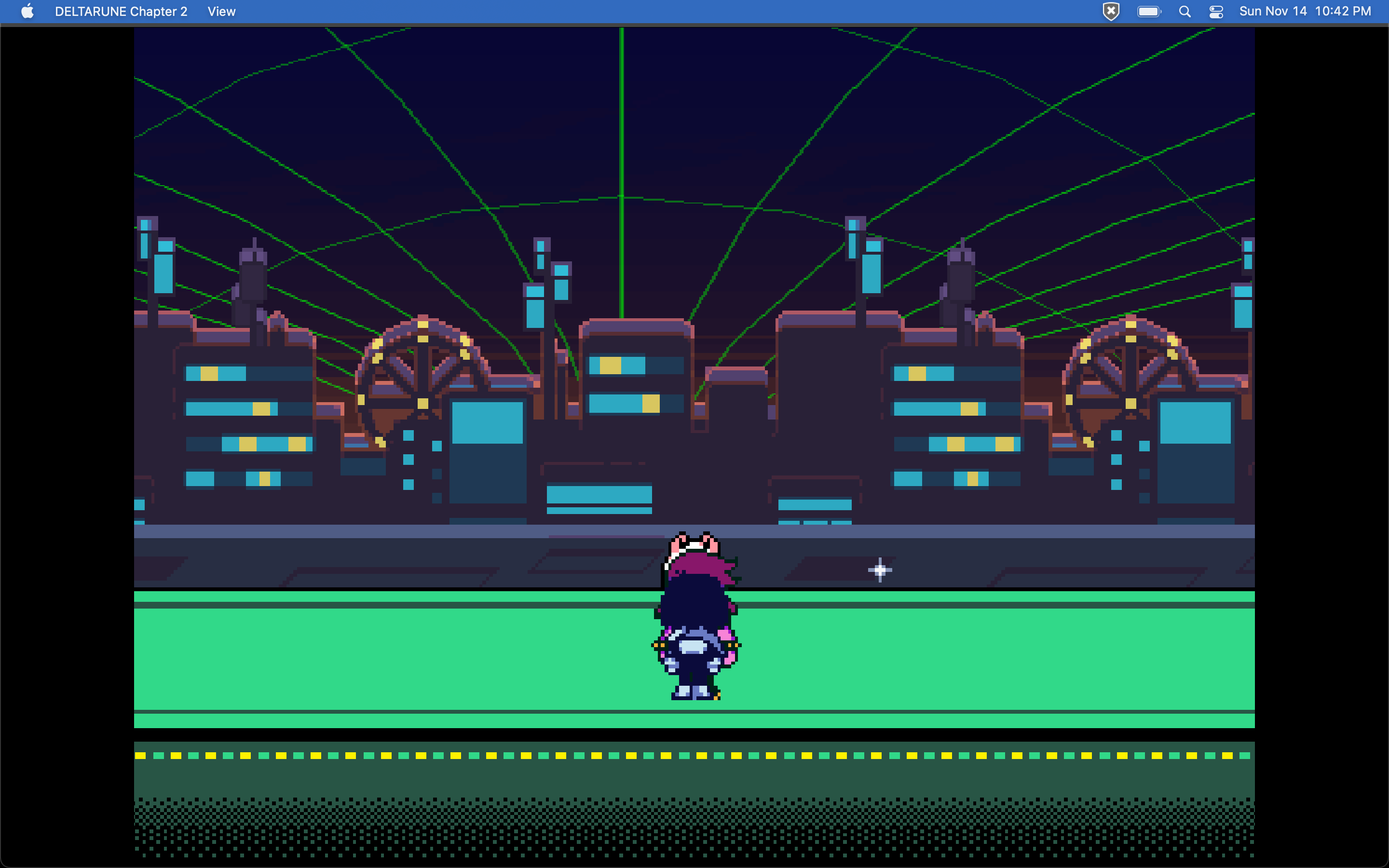
COMS 333/02 (Winter 2025): GAMES, MEDIA AND CULTURE
From the syllabus: With a growing global games industry valued at an estimated $187.7 billion USD in 2024 come significant questions about when, where, why, and how games and play have come to matter to us. This course provides students with an introduction to the study of games (digital and analog), their relationship to other media, and their impact on contemporary society and culture. Students will learn how to critically engage with games as media objects, be familiarized with a variety of theories and methods for studying games, and consider the role and impact of games across various (sub)cultures. Through the course materials, we will explore topics such as labour and production, diversity and representation, queer games, the impact of “GamerGate 2.0”, and competitive gaming spheres such as speed-running and E-Sports. Students will have the opportunity to learn how to make sense of games as both scholars and as players by working with them directly in the classroom and by connecting them to current events and day-to-day life.
- Teacher: CARRIE E. LYNE DWYER
Intermedia ventures into experimenting with an expanded understanding of the image beyond the limited purview of disciplinarian approaches in cinema and photography traditions.
Our year-long course is particularly invested to explore a capacious concept of what the image is, or could be, in the sense that images take on different forms beyond the visual image. In fact, ‘the image’ could take form through many of the interconnected registers (that are associated with sensory experience): the sonic image, the thought-image and dream-image, or the memory-image.*
With this in mind, Intermedia traces the in-between spaces across photographic, cinematic, and sonic media through a range of historical, material, conceptual and political contexts. We experiment with what dwells in between the images including (but not limited to) modes of production, labor relations, technologies, infrastructures, and histories. The space between images becomes a politically charged space for navigating and renegotiating the terms and forms of relation, of the "being-with" that connects all forms of life.**
*Romero, Andrés, “Image as Method: Conversations on Anthropology through the Image,” last accessed August 25th, 2024: https://somatosphere.com/2015/image-as-method-conversations-on-anthropology-through-the-image.html/
**Conrath, Ryan. Between Images: Montage and the Problem of Relation. Oxford University Press, 2023.
Land Acknowledgement
We acknowledge this land, Tio’Tia:Ke, colonially known as Montreal, as stolen Mohawk land. We stand in solidarity with the Kanien’kehaka and Haudenosaunee Six Nations.
We recognize the role of cultural modes of production in the colonization, not only of land, but of imaginings and our imaginaries, in economies of destructive scale, from Turtle Island to Palestine. In our classroom we strive to create historically informed acts of storytelling as we strive to render visible the connection between different geographies and histories of extraction and dispossession here on this stolen land and elsewhere.
Patriarchal Colonial Capitalism centers the individual as Creator because it assumes unlimited resources can be extracted to execute an Idea in a linear creative process from Conception to Production. We also recognize and actively challenge the enduring infrastructures, technologies (audio-visual, communication, surveillance, military), and modes of knowledge production and dissemination that have long created epistemological hierarchies and economic inequalities that continue to divide the world into distinct zones and spheres of living and dying.
We action our solidarity within this media production classroom, by centering Indigenous and non-Western epistemologies and ontologies, not only by diversifying bibliographies and creative references, but also by making kin with the forms we collaborate with - community, land, material and one another: a creative process as a circle of relations - including our relation to the unknown.
- Teacher: SANAZ SOHRABI
- Teaching Assistant: Juliana Galbraith
- Teaching Assistant: Juliana Galbraith
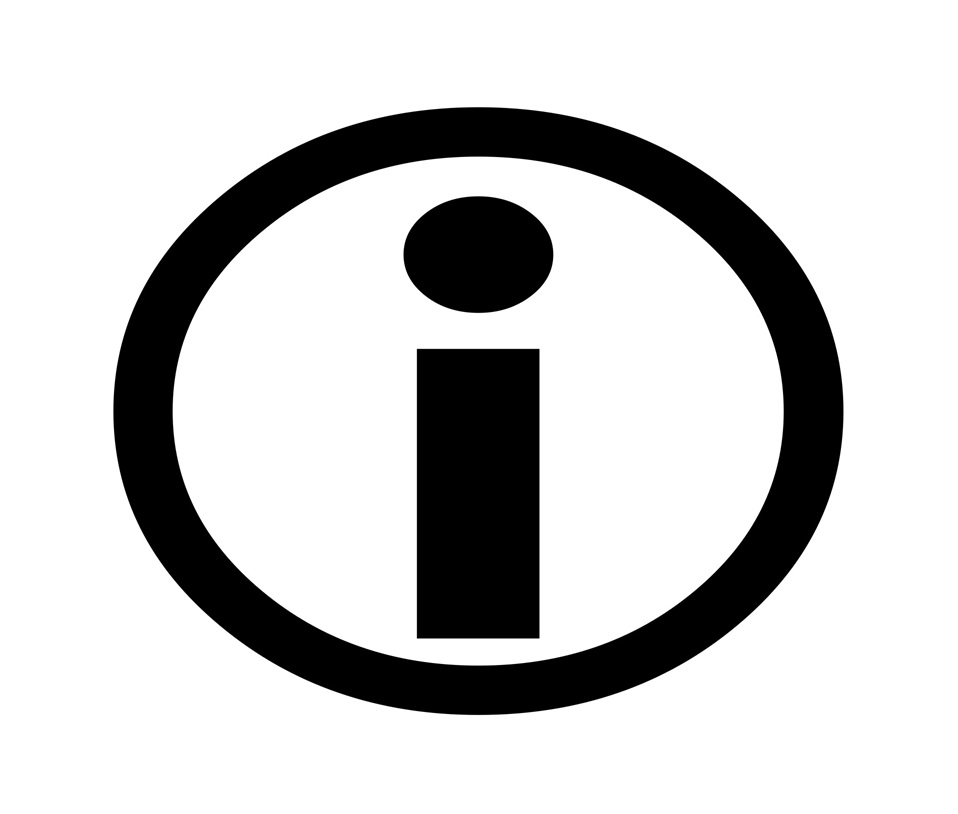
COMS 422/01 Perspectives on the Information Society - Winter 25
- Teacher: STEPHEN MONTEIRO
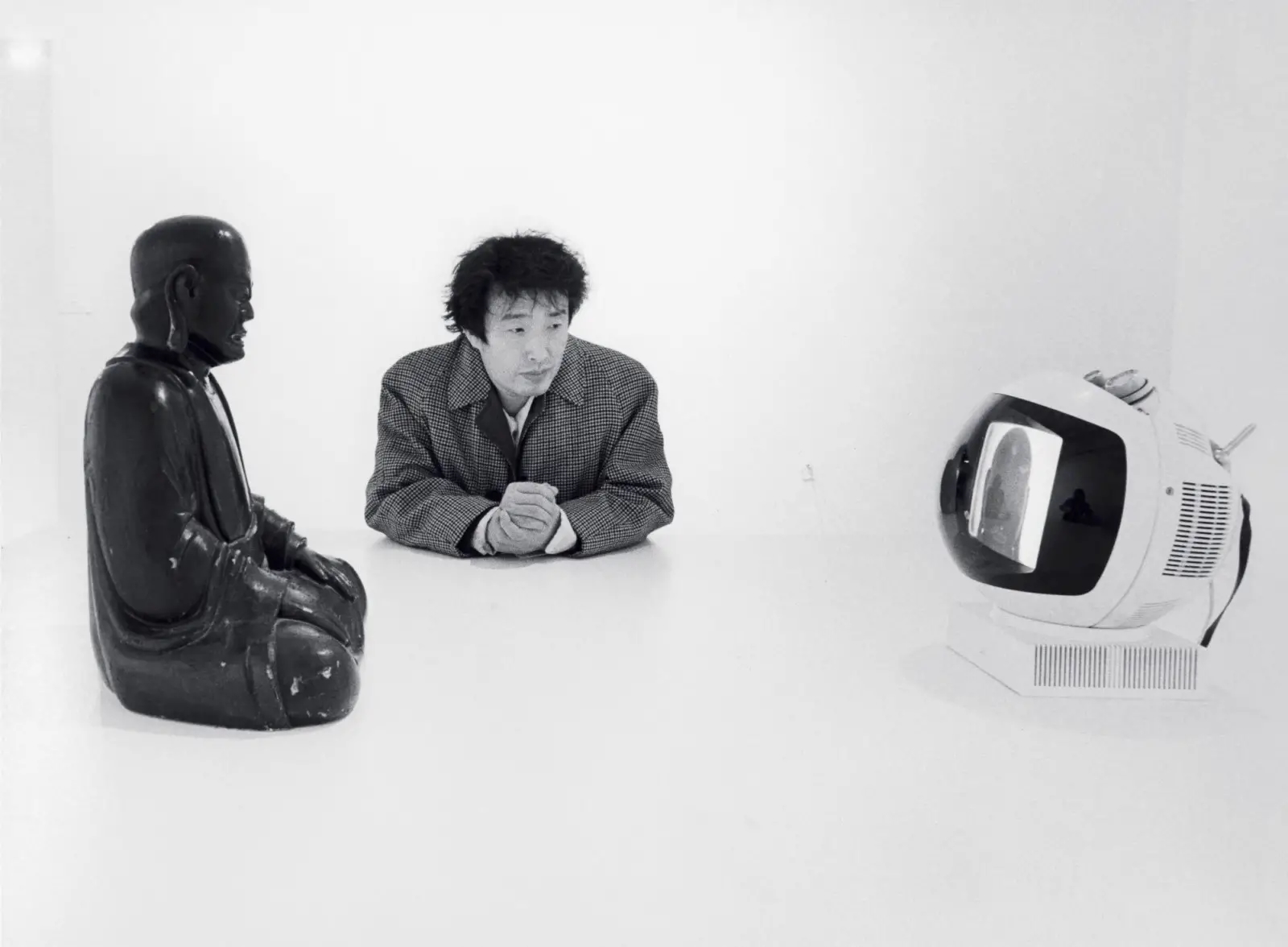
COMS 600/01 (Fall 2025): COMMUNICATION THEORY
This course is meant to critically examine a broad range of theories of communication that attempt to define media and their social role. But we are examining these theories together in an unprecedented moment: the revolution in the streets against genocide, war, totalitarianism, the end of reconciliation and the demands for reparations by Indigenous communities, the precipitous challenges of radical climate crisis, new virulent forms of transphobia and gender policing, political instability and new totalitarianisms around the world. What does it mean, then, to do media studies in our times?
What does it mean also to do this work by taking up the challenges of #CommunicationsSoWhite—a poignant critique of the field of Media & Communication Studies for its historical narratives and canonical selections that preclude consideration of questions of race and ethnicity, or their intersections with gender, and sexuality? What might it mean to centre the work of BIPOC scholars, to hear from a multitude of voices and perspectives, and we think together about the social role of media and the practices of media-making? How do we think media beyond media, to think the relevance of media forms in unexpected places and forms?
These are necessary and formidable challenges. We will be attempting to address head on shifts in how the classroom is constituted, how we create communities, how we think in inclusive ways, how we centre marginalized voices, and how we do engaged scholarship. And we jump into this exercise without guarantees, with the potential for confusion, technical glitches, and more. But we do it conscious also of the urgency of doing this work, and doing it together, in this time.
What we need? Grace, patience, solidarity, curiosity, flexibility. All of these will help get us through this potent space of learning together. What I lay out here is a plan for action. We will readjust, recalibrate, rethink it together as we go along. We will ask what’s working and what’s not, what we can give time to and what is impossible, where our conversations are generative and where they are stilted, and we will work out how to proceed together, in a spirit of being together in this endeavour.
Accessibility
This class will make use of several formats: Moodle texts and exercises, forum posts, (potentially) Zoom discussions, links to videos and/or sound recordings, and texts. These formats all have their own affordances and exclusions. If you wish to discuss academic accommodations, questions of accessibility, technical lacunae or anything else, please get in touch with me. If something arises during the semester to change your accessibility options, please also reach out. I welcome the opportunity to work with you to make the course accessible and enriching.
- Teacher: KRISTA G. LYNES
In this studio-based course, students examine environmental and sustainable practices in relation to dance. Attention is given to how dance can be used as a tool to communicate environmental issues to diverse audiences and to interrogate the impact of dance practices on the environment, dancers’ bodies, and communities. Students study the work of choreographers who practice social, decolonized, and environmental sustainability and examine ways to apply these approaches to their own creative practices.
- Teacher: KAMA MAUREEMOOTOO
DANC 411/A (Fall 2025): CAPSTONE I: CHOREOGRAPHIC PROC
This third-year level course is framed around process and research, and it is the first part of a year-long, capstone choreographic project. The course introduces students to research processes and methods related to choreographic research to support the development of student’s projects, choreographic language and interests.
Students will explore the relationship between theory and practice, situate and position their proposals in wider contexts (historical, aesthetic, social) and develop a singular choreographic process. Through movement exploration and experiments with dramaturgical forms, this course will support students in the creation of specific physicality’s, choreographic vision and planning for their final creation at Concordia Theatre in March 2026.
They will explore with transmission, collaboration, class discussions, collective readings, develop and practice peer-to-peer feedback methods, observe and express critical thinking.
In addition, they will be required to present and articulate their proposition throughout the course and publicly in the last studio presentation.
Their ideas will be the basis of the course content, students will learn to progressively build and argument their projects.
- Teacher: LILIA MESTRE
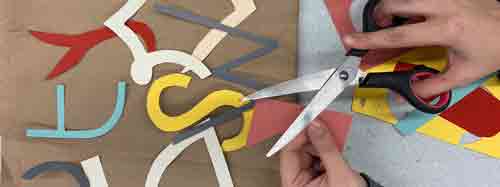
DART 280/AA (Winter 2025): INVESTIGATIONS/TYPOG. DESIGN
: OUTLINE IN PROGRESS :
Investigations in Typographic Design
instructor: pata macedo [pata.macedo@concordia.ca]
office hours by appointment
MONDAYS 5:45pm to 9:45pm
studio EV 7.765 SGW
computer lab EV 5.815 SGW
MAKE-UP class on April 14th
+ + + + + +
This studio course focuses on typographic design and explores the functional and expressive aspects of typography. Process-based assignments emphasize the principles of typography, information hierarchy, multiple-page content, and text-image relationships.
Prerequisite: DART 221; DART 291, 292 previously or concurrently; or written permission of the Department.
+ + + + + +
Grading
Students will be evaluated on their conceptual skills (creativity and problem solving), technical execution (precision and accuracy), presentation (oral communication, written communication, neatness and organization), crafts/wo/manship, class participation, commitment, timeliness, enthusiasm, initiative and follow-through.
Distribution
15% Participation, Engagement and Exercises
10% Typographical Journal Weekly Entries
10+30% Typeface(s) Presentation + Collaborative Type Design Project
35% Typographic Experimental Book Project
All major projects must be completed to pass this course.
Late projects will be lowered by a full grade for each week the project is late (i.e. A- to B- or C to D) .
Final Grade
The final grade will be based on the University grade point equivalents as listed in the Concordia Undergraduate Calendar, Section 16.3.3.
A | Outstanding/Excellent
The work is an outstanding interpretation of the assignment, demonstrating critical thinking, careful attention to detail and planning. Excellent in both content and form, it is well crafted, insightful, and surprising in its originality.
B | Very Good
The work demonstrates a strong interpretation of the assignment’s requirements in concept, content and form. It would benefit from a more original approach, and/or formal refinements.
C | Satisfactory
The work demonstrates a sufficient interpretation, fulfilling the assignment’s basic requirements. However, some aspects of the development and outcome are missing or lack completion.
D | Marginal Pass
The work demonstrates a minimal interpretation of the assignment.
F | Fail
The work does not fulfill the assignment’s requirements.
Winter 2025 Calendar Important Dates
https://www.concordia.ca/students/undergraduate/undergraduate-academic-dates.html#winter2025
Department Standard for: Class Participation, Attendance and Punctuality
While the structure of individual classes may vary between instructors, courses, and weeks according to the types of activities involved, the Department recommends that for 4-hour classes, students and their instructors have 20-30 minutes of break time, and for 3-hour classes, they have 10-20 minutes of break time.
Class Participation
In-class participation is considered an important and significant part of each course. Attendance is taken, and students are responsible for being present at all classes. Up to 30% of the final grade for any course can be given for attendance and class participation, at the discretion of the instructor.
Attendance
As a standard departmental policy, a maximum of two absences per term is tolerated, after which an official medical note or other valid reason must be provided. Justification must be given in writing to the instructor. Three unjustified absences per course will result in a failed grade. It is incumbent on the instructor to warn a student, via email, if that student is not meeting course expectations. Notification in writing will be sent by the instructor to the student after two missed classes to notify the student they are at risk of failing.
In all cases, students are responsible for any coursework due during periods of absenteeism, including the Drop/Add period.
Department Standard for Punctuality
Students missing fifteen minutes or more (through late arrival or leaving while class is in session) will be considered a partial absence, at the discretion of the instructor. Students are encouraged to take notes, however the use of mobile devices (tablets, phones, and laptops) and social media is disallowed during lectures, presentations, and critiques.
- Teacher: PATRICIA SOARES DE MACEDO
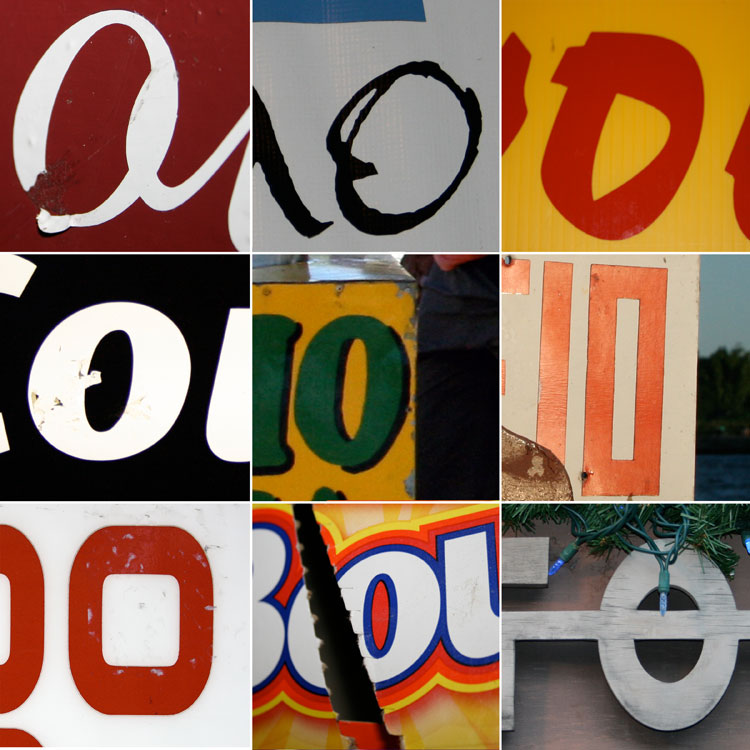
DART 331/A (Winter 2025) WORDS IN SPACE
Thursdays, 8:45am to 12:45pm
Studio EV 7.735 + Lab EV 5.709 SGW
Instructor: pata macedo [pata.macedo@concordia.ca]
Office hours by appointment
+ + + +
OUTLINE in PROGRESS
+ + + +
This studio course focuses on type and image in the built environment. Issues of space, materiality, and legibility are examined within architectural and urban landscapes. Students engage in projects ranging from wayfinding and signage to exhibition design and installations.
+ + + +
Grading
Students will be evaluated on their conceptual skills (creativity and problem solving), technical execution (precision and accuracy), presentation (oral communication, written communication, neatness and organization), crafts/wo/manship, class participation, commitment, timeliness, enthusiasm, initiative and follow-through.
Distribution
25% PROJ 01
40% PROJ 02
15% PRESENTATION
20% Participation and Engagement in Class + Small Assignments
All major projects must be completed to pass this course.
For each of the major projects, the grade is divided accordingly
15% Concepts presentation/ Proposal
25% Mock-up
50% Final project
10% Process Book (PDF) + digital files uploaded
Late projects will be lowered by a full grade for each week the project is late (i.e. A- to B- or C to D) .
All the artwork submitted (written content, illustrations, photography, shapes, patterns, etc.) must be original artwork created by you.
+ + + + + +
Grading
Students will be evaluated on their conceptual skills (creativity and problem solving), technical execution (precision and accuracy), presentation (oral communication, written communication, neatness and organization), crafts/wo/manship, class participation, commitment, timeliness, enthusiasm, initiative and follow-through.
Late projects will be lowered by a full grade for each week the project is late (i.e. A- to B- or C to D) .
All the artwork submitted (written content, illustrations, photography, shapes, patterns, etc.) must be original artwork created by you.
Final Grade
The final grade will be based on the University grade point equivalents as listed in the Concordia Undergraduate Calendar, Section 16.3.3.
A | Outstanding/Excellent
The work is an outstanding interpretation of the assignment, demonstrating critical thinking, careful attention to detail and planning. Excellent in both content and form, it is well crafted, insightful, and surprising in its originality.
B | Very Good
The work demonstrates a strong interpretation of the assignment’s requirements in concept, content and form. It would benefit from a more original approach, and/or formal refinements.
C | Satisfactory
The work demonstrates a sufficient interpretation, fulfilling the assignment’s basic requirements. However, some aspects of the development and outcome are missing or lack completion.
D | Marginal Pass
The work demonstrates a minimal interpretation of the assignment.
F | Fail
The work does not fulfill the assignment’s requirements.
Winter 2025 Calendar Important Dates
https://www.concordia.ca/students/undergraduate/undergraduate-academic-dates.html#winter2025
Department Standard for: Class Participation, Attendance and Punctuality
While the structure of individual classes may vary between instructors, courses, and weeks according to the types of activities involved, the Department recommends that for 4-hour classes, students and their instructors have 20-30 minutes of break time, and for 3-hour classes, they have 10-20 minutes of break time.
Class Participation
In-class participation is considered an important and significant part of each course. Attendance is taken, and students are responsible for being present at all classes. Up to 30% of the final grade for any course can be given for attendance and class participation, at the discretion of the instructor.
Attendance
As a standard departmental policy, a maximum of two absences per term is tolerated, after which an official medical note or other valid reason must be provided. Justification must be given in writing to the instructor. Three unjustified absences per course will result in a failed grade. It is incumbent on the instructor to warn a student, via email, if that student is not meeting course expectations. Notification in writing will be sent by the instructor to the student after two missed classes to notify the student they are at risk of failing.
In all cases, students are responsible for any coursework due during periods of absenteeism, including the Drop/Add period.
Department Standard for Punctuality
Students missing fifteen minutes or more (through late arrival or leaving while class is in session) will be considered a partial absence, at the discretion of the instructor. Students are encouraged to take notes, however the use of mobile devices (tablets, phones, and laptops) and social media is disallowed during lectures, presentations, and critiques.
- Teacher: PATRICIA SOARES DE MACEDO
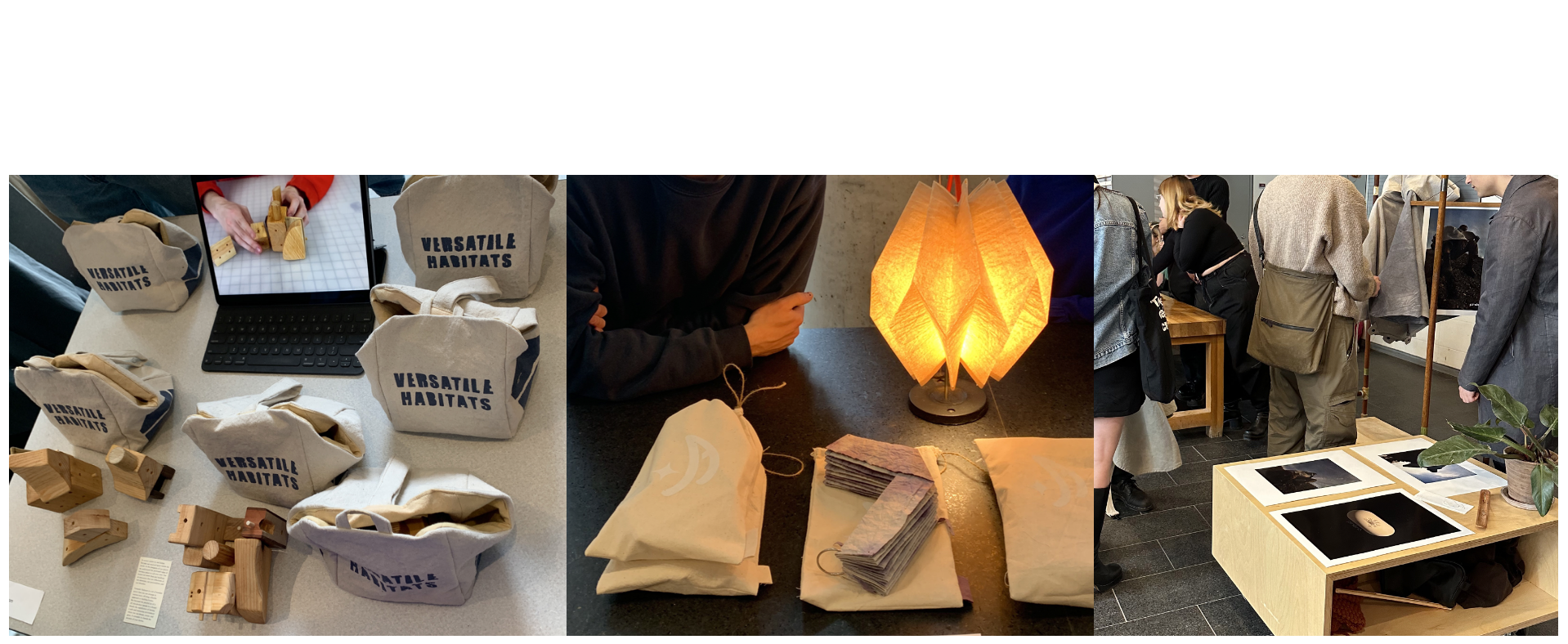

Socio-Cultural Environmental Research and Practice II: This studio course further develops soft surface design and applications through specific sustainable projects and community initiatives. Students work in collaboration with different stakeholders in the research, conceptualization, construction, and analysis stages of project design.
- Teacher: ANNE-MARIE DURAND-LAFLAMME
- Teacher: CATHERINE METIVIER
- Teacher: MIRANDA JOY SMITHERAM
DTHY 643/GA (Summer 2025): SOCIODRAMA AND PSYCHODRAMA
- Teacher: HEIDI LANDIS

Course Description
By evaluating available resources, practical tools, and curricula in today’s Canadian society, this course familiarizes students with approaches to sexual health education that are suitable for working with children and youth in a variety of educational settings, including the home, community agencies, and schools. The importance of gearing education to accommodate different developmental stages, ages, and local social contexts is stressed.
- Teacher: CASEY MEGAN BURKHOLDER
- Teaching Assistant: Emma Corosky
EDUC 384/AA (Winter 2025): TEACH SOCIAL STUDIES IN ELEMENTARY SCHOOLS
- Teacher: RAMI KAMEL
- Teaching Assistant: Sophie Marier
EMBA 623/A (Winter 2025): MANAGING IN A GLOBAL ENVIRON
The global business landscape is dynamic, complex, and interconnected, requiring leaders to navigate cultural diversity, technological advancements, and strategic challenges. Managing in a Global Environment prepares students to excel in this context by developing the skills needed to lead, collaborate, and innovate across borders. The course addresses the intricacies of managing global teams, emphasizing the SPLIT framework—Structure, Process, Language, Identity, and Technology—as a foundation for diagnosing and overcoming common challenges such as social distance and cultural misunderstandings.
Beyond team dynamics, students will explore critical global business topics, including cross-cultural negotiation techniques to build trust and resolve conflict effectively, strategies for navigating supply chain disruptions to ensure resilience, and market expansion approaches to identify and capitalize on international opportunities. The course also highlights sustainable business practices, empowering students to drive growth while prioritizing environmental and social impact.
Through engaging case studies, immersive simulations, and hands-on exercises, students will gain practical experience in tackling real-world challenges faced by global leaders. By applying course concepts to diverse scenarios, participants will refine their ability to think strategically, communicate persuasively, and make informed decisions in complex international environments.
- Teacher: SHARI CASTELLO
- Teacher: GILLIAN LEITHMAN
- Teacher: SHARON-MAY NELSON
- Teacher: RAHUL RAVI
- Teacher: DEBRA SZTULMAN
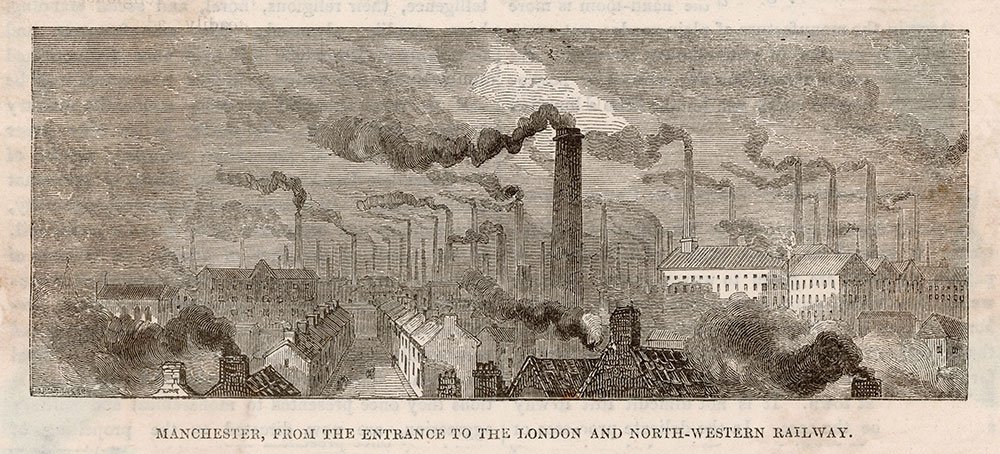
ENGL 332/AA (Fall 2025): STUD/19TH-CENTURY BRITISH LIT
LITERATURE(S) OF THE "VICTORIAN PERIOD"
In 1831, at the dawn of what has come to be known as the Victorian era, Thomas Carlyle wrote: "Never since the beginning of Time was there...so intensely self-conscious a Society. Our whole relations to the Universe and to our fellow-man have become an Inquiry, a Doubt." Already, the Victorians were defining themselves as a historical period of thought and culture. In this course we will study some of the most canonical works of British poetry, fiction, and non-fiction prose that have been used to define "Victorian" (1832-1901) as a period of literary history, alongside works from a broader global frame that offer new perspectives on what Victorian literature was, and what it can teach us today. This approach will allow us to ask questions about the different kinds of "Victorian" worlds we might conjure through literary study (English and Anglocentric, imperial, settler-colonial, etc.). We will study Victorian texts as formal aesthetic objects intertwined with ideas and social phenomena concerning class and industrial relations; the position of women in society; science, technology, and media; race, empire, and national identity; education; and the conception of literature in a commodity culture, among other frames. We will also consider the theoretical and practical implications of studying literature through the lens of periodization, and what it means to think about "Victorian" as a literary category, situated between the Romantic and Modernist periods. Our approach will be both textual and contextual, combining lectures and substantial class discussion. Some of the authors to be considered will include Carlyle, Mill, Barnes, Hood, Tennyson, Darwin, Gaskell, Dickens, Engels, Browning, C. Rossetti, Ruskin, Arnold, Pater, Morris, Wilde, Stevenson, Hopkins, Johnson / Tekahionwake, and Ghandi.
- Teacher: JASON E CAMLOT

This class explores the postcolonial texts and context that have shaped contemporary Caribbean literature. It engages with a complex history of anti-colonial resistance, decolonization, and nation-building to understand the ways in which cultural producers from the Caribbean have reflected on the broader questions of internationalism, imperialism, and exploitation. For this purpose, we will read classics like CLR James’s Black Jacobins, the definitive nonfiction account of the Haitian revolution, alongside radical thinkers like Aimé Césaire and Frantz Fanon as well as contemporary writers like Michel-Rolph Trouillot to investigate how Caribbean writers have developed a tradition of counter-history that challenges what Trouillot calls “the silencing of the past.”
This will allow us to investigate how contemporary writers like Patrick Chamoiseau, Maryse Condé, Marlon James, and Jamaica Kincaid re-examine the past and present to develop a distinct postcolonial identity. While the course focuses mainly on prose writing and nonfiction, we will also investigate the revolutionary history of postcolonial poetry and how it develops themes of identity, resistance, cultural syncretism, and the natural environment through the works of Merle Collins and the philosophical speculations of Édouard Glissant.
By unpacking themes such as resistance, belonging, and cultural hybridity, students will gain a deeper understanding of the dynamic debates in the field of postcolonial theory more broadly speaking. The course aims to encourage interdisciplinary perspectives by drawing on insights from literature, history, sociology, and cultural studies. Through in-class discussions we will develop a nuanced appreciation for contemporary debates in the field which challenge established categories of investigation and suggest new theoretical approaches.
- Teacher: FELIX FUCHS
ENGL 470/A (Winter 2025): HONOURS SEMINAR
The Honours seminar concerns the intersection of national and natural history in American nature writing, as well as genre history and the reformist politics this literary genre often promotes. The class introduces Ralph Waldo Emerson and, most importantly, his preeminent acolyte Henry David Thoreau, who extends natural history into conservation and social justice, including abolitionism, female suffrage, Native land rights, and agitation against industrial agronomy and unregulated resource extraction. The course turns to the rise of modern ecology and exemplary texts by e.g. John Muir, Luther Standing Bear, Mary Austin, Arno Leopold and Rachel Carson. Particular attention is dedicated to the contemporary legacy of this environmental tradition, in which gendered, Native, Latino, African-American and diasporic perspectives gain belated prominence.
- Teacher: ANDRE FURLANI
ENGR 392/AA (Summer 2025): IMPACT/TECHNOLOGY ON SOCIETY
- Teacher: HERVE ROBERT HORNER
- Teaching Assistant: KUMAR SUNDARAM PATHAK
- Teaching Assistant: Kumar Sundaram Pathak
ENGR 392/AB (Summer 2025): IMPACT/TECHNOLOGY ON SOCIETY
- Teacher: JONATHAN WALD
- Teaching Assistant: Ahad FarnoodAhmadi
- Teaching Assistant: Mehrab Malekshahinejad
ENGR 392/CC (Summer 2025): IMPACT/TECHNOLOGY ON SOCIETY
- Teacher: PETER GRAHAM
- Teaching Assistant: JACOB BABY
- Teaching Assistant: Kumar Sundaram Pathak
ENGR 392/CD (Summer 2025): IMPACT/TECHNOLOGY ON SOCIETY
- Teacher: MICHIKO ARAMAKI
ENGR 392/CF (Summer 2025): IMPACT/TECHNOLOGY ON SOCIETY
- Teacher: PETER GRAHAM
- Teaching Assistant: SREELAKSHMI RAMACHANDRAN
ENGR 392/D (Fall 2025): IMPACT/TECHNOLOGY ON SOCIETY
- Teacher: Shrouk Gharib
- Teacher: KETRA SCHMITT

ENGR 392/EE (Fall 2025): IMPACT/TECHNOLOGY ON SOCIETY
How do technology and society influence one another? And why would this question be so important that it is required throughout engineering programs, not just in Canada but across the world? It turns out that there is a great deal of scholarship related to these questions – and how to teach about the relationship.
This course emphasizes and develops the Canadian Engineering Accreditation Board (CEAB) graduate attributes of Ethics & Equity, Communication Skills, and Impact of Engineering on Society and the Environment.
The Communication Skills attribute is defined by the CEAB as: An ability to communicate complex engineering concepts within the profession and with society at large. Such abilities include reading, writing, speaking and listening, and the ability to comprehend and write effective reports and design documentation, and to give and effectively respond to clear instructions.
- Teacher: KETRA SCHMITT
- Teacher: PAMELA TUDGE
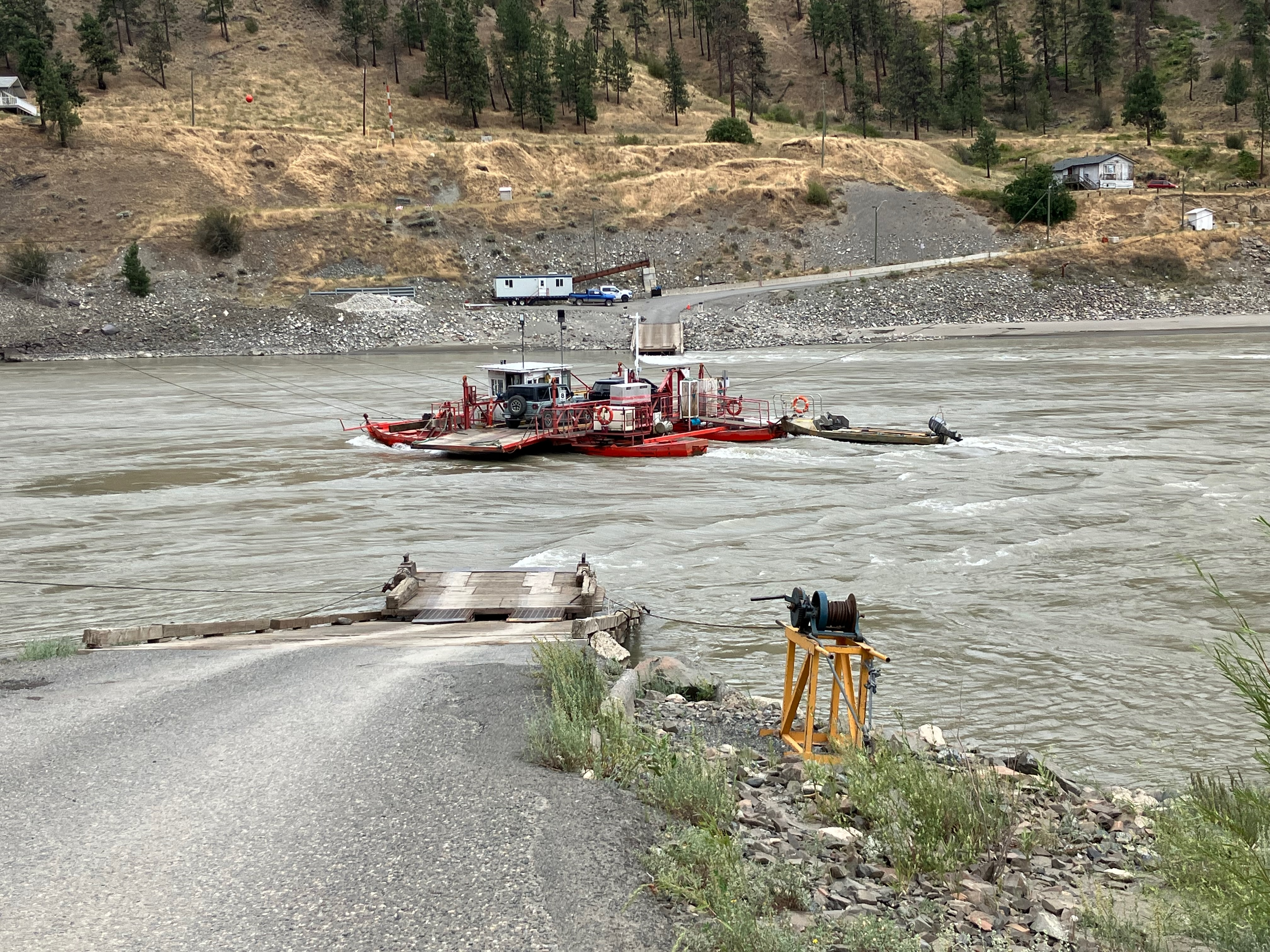

ENGR 392/Q (Winter 2025): IMPACT OF TECHNOLOGY ON SOCIETY
How does technology impact our lives? What is the initial intention and purpose in developing new technologies, and media? What are the social and ethical impacts of our creations? Science and Technology Studies (STS), a cross-disciplinary field, posits that science and technology always exist in relation to and are co-created by broader social forces, political contexts, and histories. We will examine how knowledge, technology, and understandings of ourselves and “the other” are produced through complex relationships, histories, biases, and social constructs and contexts.
Instead of asking whether scientific claims are true or false, objective or subjective, this course will examine the power and potential of innovative technologies and knowledge production within our broader socio-political conditions so that we might better understand the complexity, challenges, implications of our interactions. This course will focus on building students' knowledge, skills, and capacity for curiosity, inquiry, and critical evaluation in their respective disciplines so that they might apply these learnings to their field and practices.
- Teacher: SREELAKSHMI RAMACHANDRAN
- Teaching Assistant: JACOB BABY
- Teaching Assistant: Jacob Baby
ENGR 392/RR (Winter 2025): IMPACT/TECHNOLOGY ON SOCIETY
- Teacher: PETER GRAHAM
- Teaching Assistant: JACOB BABY
- Teaching Assistant: MASOUMEH ZAARE
FFAR 200/AA (Fall 2025): INTRO TO BLACK STDS CDN CONTXT
Introduction to Black Studies in the Canadian Context
(3 credits)
Fall, 2025
Dr. Christiana Abraham
Black and African-Diaspora Studies in the Canadian Context (Minor)
Course: Tuesdays: 5:24-8:15 pm
Course location: H-621- SGW
Office: ER 617, (2155 Guy St.)
Office hours: Tuesdays: 16:00-17:00 or by appointment
Email: christiana.abraham@concordia.ca
Teaching Assistant (TA): Dalia Elsayed
Email: dalia.elsayed@concordia.ca
Course Description:
This course offers a broad introduction to Black Studies. Emphasis is placed on creative expressions within the histories and themes of Blackness in the Canadian context. This course introduces students to foundational texts, cultures, and philosophies of Black scholars in the field. Students develop critical vocabulary and frameworks to engage with Blackness in the Canadian context through the study of Canada’s diverse Black populations.
Learning Outcomes:
1. Identify significant figures/thinkers, major themes, philosophies, movements and creative expressions in the history of Black Canadians, and Black and African-Diaspora scholars.
2. Discuss the activism of Black Canadians and African-Diaspora communities and their contributions to the fabric of Canadian and other societies.
3. Appraise the realities, needs and issues pertaining to local Black communities.
4. Situate experiences of Black Canadians in relation to trans-national Black diasporic philosophies and practices, exploring both unique and shared challenges and successes.
5. Apply acquired critical vocabulary and perspectives to examine and discuss issues related to Blackness in Canada.
Key Terms: Black political philosophy; Black radical thought; Black Canadian art; resistive praxes; Black representations and media; the Black gaze; Caribbean popular culture; social consciousness of the post-colonial
- Teacher: CHRISTIANA ABRAHAM
- Non-editing teacher: Sabrina Sinanis
- Teaching Assistant: DALIA ELSAYED
- Teaching Assistant: Dalia Elsayed
FFAR 292/AA (Fall 2025): CULT STDS & CREAT IN HIV/AIDS
- Teacher: KAREN L HERLAND
- Non-editing teacher: Sabrina Sinanis
- Teaching Assistant: JODEE NADENE ALLEN
FFAR 298/AA (Winter 2025): SPECIAL TOPICS IN FINE ARTS
My name is Yassin Alsalman. This is my 11th year teaching Hip-Hop related classes at Concordia, where I studied and graduated. I spent these last ten years, quietly touring, creating, making music and collaborating within the culture, as NARCY. Hip-hop and Rap saved my life, no jokes. At a time where the world was against my people, whether in faith or culture, I found a safe space to create and express, write story and document our truth - in Hip-Hop I trusted. And to Hip-Hop, I owe a great service. But, in truth, it’s bigger than Hip-Hop for me.
In the 50 years of existence, the culture has changed the world around us. It has brought struggles, political, social, racial, personal to the forefront of pop culture. It has opened eyes, hearts and minds. It has invited us into spaces we would rarely visit. It has pointed its fingers at the worst in us, and brought out the best in us. It has been pimped and sold but has also brought a great deal of freedom and responsibility to multiple communities around the world. Hip-Hop, is the most important culture of our century and I don’t say that lightly. Most importantly, it brings the difficult conversations to the forefront, and sometimes, problematically.
This course will analyze the music and fashion, activism and passion of hip hop culture. Though we will cover a “who, what, when, where and how” in hip-hop, the focus will be on practice and philosophical questions. The course will serve as a venue for exploring contemporary issues in relation to personal lived experiences of hip hop culture, while considering historical context. Within the structure of the course, students will have opportunities to pursue issues related to their interests. Students will develop skills in critical thinking and observation, while making connections between the personal and political aspects of hip hop. This is a class about process,
A limited number of places are open to Fine Arts students. In a BFA degree, this course can only apply as a free elective. Students who have received credit for FFAR 256 or FFAR 398B may not take this course for credit. This class has alot of group work to do. We will attend a concert together, we will talk together, we will create together and most importantly, we will listen to each other. There is a lot to learn and understand. The core of this class is about creativity, expression and how it has freed the world at its most unjust times. Maybe it’s time we learn to learn together. Here we go again.
To A Great Semester. With Solidarity. Professor NARCY.
- Teacher: YASSIN AL-SALMAN
- Non-editing teacher: Sabrina Sinanis
- Teaching Assistant: Cristina Alejandra Jimenez Gomez

FINA 310/AA (Fall 2025): REAL ESTATE DEV & ENTREPR
This course focuses on fundamental concepts and analytic tools applied in real estate development. It incorporates the interdisciplinary character and the entrepreneurial nature of the development process. It covers different interactive stages and discusses the roles and motivations of various stakeholders involved in this decision-making process. In addition to the analysis of financial returns, this course includes discussion on the economic, social and environmental costs and benefits. Please review the course outline.
- Teacher: MICHAEL FILATO
FMST 319/A (Fall 2025): THE MOVING IMAGE AND SOCIETY
- Teacher: XIN ZHOU

FPST 210/A (Fall 2024): HAUDENOSAUNEE PEOPLES
This course offers an overview of the history of the Haudenosaunee (Iroquois) from pre-contact to the present, focusing on Haudenosaunee society's culture and political structure.
- Teacher: ROXANN WHITEBEAN
FPST 402/A (Winter 2025): FIRST PEOPLES -SOCIAL ISSUES
- Teacher: MELANIE LEFEBVRE
GEOG 203/A (Fall 2025): CANADIAN ENVIRONMENTAL ISSUES
The course examines the complexity and diversity of Canadian environmental issues from an interdisciplinary perspective. Natural science considerations are explored as well as the relationship of scientific understanding to policy and wider social action. Issues addressed (may e.g. varies from year to year) include fisheries, forest, biodiversity conservation,protected areas, energy, climate change
NOTE : students registered in a Human Environment, Environmental Geography, or Environmental Science program may not take this course for credit
- Teacher: PIERRE DESLAURIERS
GEOG 290/Y (Winter 2025): ENVIRONMENT AND SOCIETY
- Teacher: KEVIN GOULD
- Teaching Assistant: Breanna Byrd
- Teaching Assistant: MARIANNE COUTURE-COSSETTE
- Teaching Assistant: Richianne Daly
- Teaching Assistant: Isabel Drummond
- Teaching Assistant: Phoebe Tom
- Teaching Assistant: Becca Wilgosh
GEOG 290/Y (Fall 2025): ENVIRONMENT AND SOCIETY
- Teacher: KEVIN GOULD
GEOG 315/A (Winter 2025): SOCI/CULTURAL GEOGRAPHIES
- Teacher: TED RUTLAND
- Teaching Assistant: Georgia Hawkins-Seagram
- Teaching Assistant: Amelia Johannesson
GIIM 655/A (Fall 2025): SOCIAL RESP & SUSTAIN INVEST
- Teacher: NILANJAN BASU
- Teacher: SARAH CAREY
- Teacher: SIMON GEE
- Teacher: SAMANTHA HAMER
- Teacher: JASON TAYLOR
HIST 285/AA (Winter 2025): INTRO TO LAW & SOCIETY
- Teacher: SARAH GHABRIAL
- Teaching Assistant: CAMERON AMBROISE-SANSCARTIER
- Teaching Assistant: Cameron Ambroise-Sanscartier
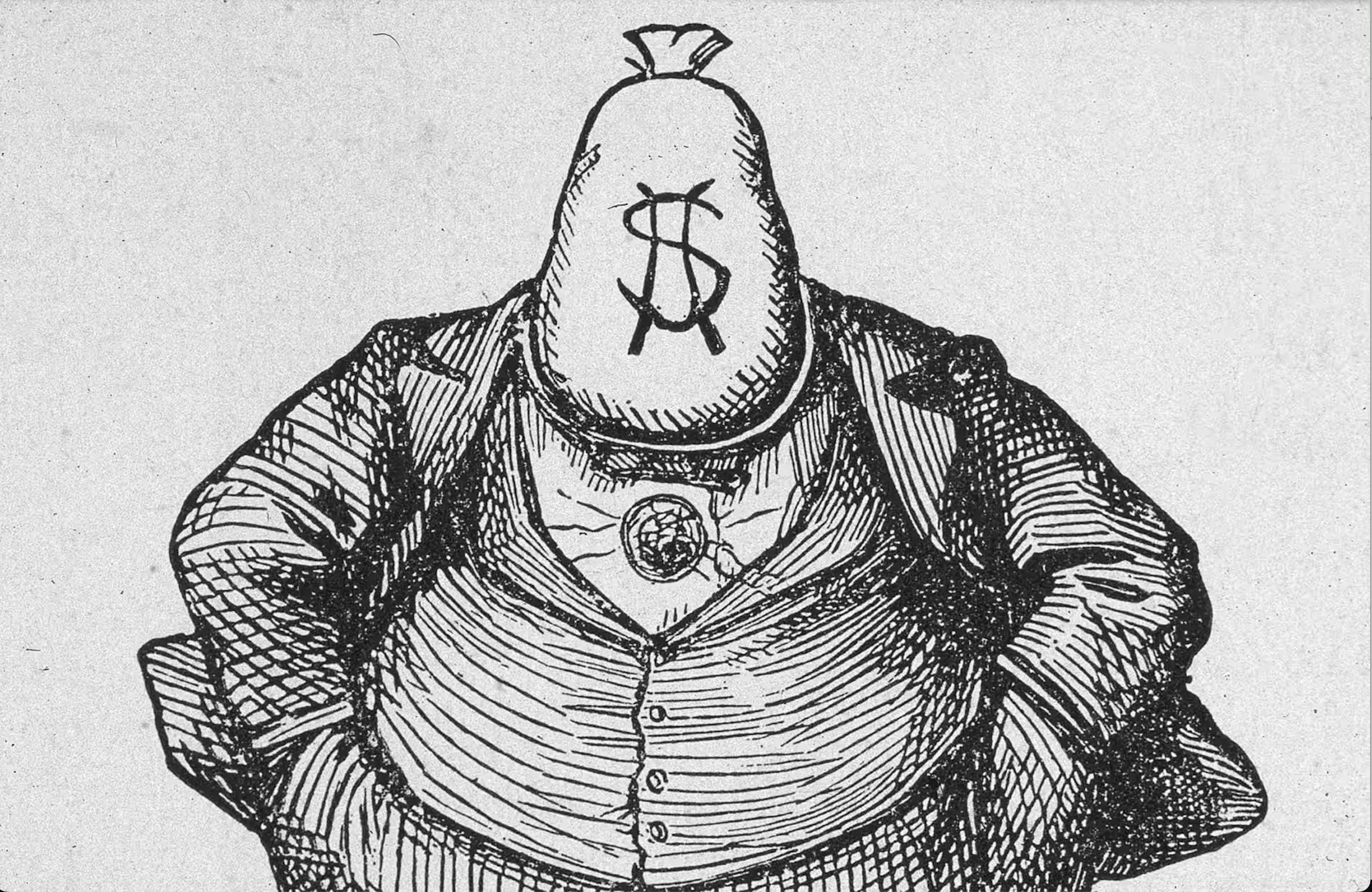
HIST 324/A (Fall 2025): US 1877-1924
The period from 1877 to 1924 witnessed the transformation of the United States from a rural debtor nation into an urban, industrial, financial, and military power. Accompanying this transformation was an unprecedented gap between the wealthy and the poor and increases in global migration and mobility. This course asks how people from all walks of life experienced, interpreted, and sought to control these changes. How did industrialization and migration reshape gendered and racialized identities? How did workers, the middle class, and the wealthy define the relationship between individual liberty and the social good? How did their political actions and social movements change the meaning of democracy, the role of government, and boundaries of citizenship in the US and abroad?
- Teacher: THERESA VENTURA
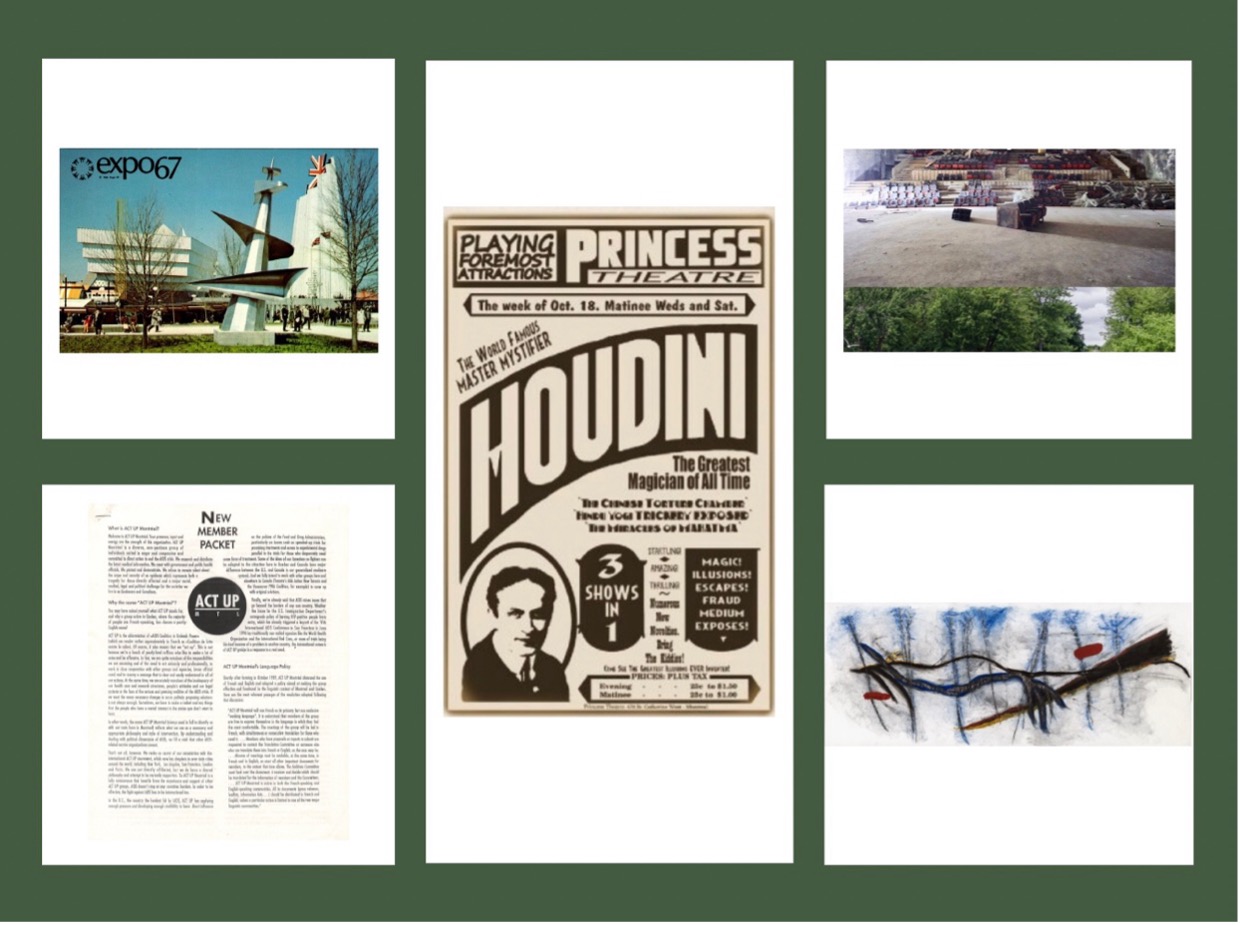
- Teacher: VK PRESTON
IRST 304/A (Winter 2025): SEXUALITIES/IRISH DIASPORA
- Teacher: JANE MCGAUGHEY
- Teaching Assistant: Victoria Kelly
IRST 371/A (Winter 2025): IRISH CULTURAL HISTORY IN QUEBEC
- Teacher: GEAROID O HALLMHURAIN
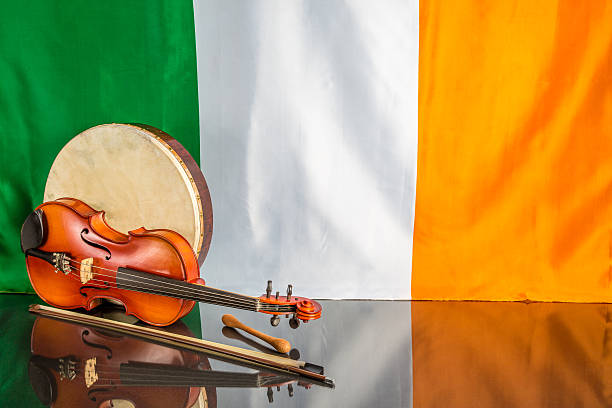
IRST 373/A (Winter 2025): IRISH TRAD MUSIC/CANADA
- Teacher: KATE BEVAN-BAKER
JOUR 325/01 (Fall, 2023): SOCIAL MEDIA & MOBILE REPORTNG
- Teacher: MATHIEU D'AMOURS
JOUR 325/01 (Fall 2025): SOCIAL MEDIA & MOBILE REPORTNG
- Teacher: MATHIEU D'AMOURS
JOUR 445/01 (Fall 2025): ADVANCED PHOTOJOURNALISM
Course outline
by ALLEN MCINNIS - Tuesday, 22 July 2025, 9:43 AM
Number of replies: 0
JOUR 445 / JOUR 523: Advanced Photojournalism
Fall 2025 session
Friday 11:45 to 14:00
Class CJ 3.307
Allen McInnis
allen.mcinnis@concordia.ca
Emergency text messages: 514.953.3951
Office hours by appointment.
Photoshop editing tips will be an office hours extra session.
Course Description:
This workshop course expands on the photojournalism fundamentals, where students apply their knowledge of theory and aesthetics of long‑ and short‑form news photography. Students use digital cameras and other technologies to complete coursework and to master the professional techniques of news photography. Exploring
The class will explore the differences between Spot News, News, News Features, Sports, Business, Portraits, general features and essay work. The class will have weekly assignments of a variety of subjects as well as in class snap assignments and class assignments as a group in the field.
Each student will be required to submit a photo essay. The subject of this essay will be reviewed in class and must be approved before executing the project in the same manner an authorizing editor would approve of such a project.
This class will have a strong focus on editing and captioning images for newspapers, wire services and news websites.
Course Requirements:
This is an in person advanced class. Attendance and participation is mandatory.
Documented medical exceptions may be considered. All class absences and lack of participation will result in grade deductions. 4 absences results in an automatic failure as per department rules.
All material created and submitted for grading must be new material created for the given assignment and must be created by the author. Plagiarism and recycling material will result in a failing grade.
This course outline may be altered to reflect the abilities of the cohort as the class advances.
Week 1:
Brief Introduction / what is photojournalism today
Brief review of class abilities status and equipment
Brief review of ethics, responsibilities of deadlines.
Photograph vs illustration. News vs feature.
Snap class assignment within the CL building. You will have less than 10 minutes notice of subject matter.
Review assignment as a group
Workflow, importance of captioning and backups
Photo essays, what are they, what will yours be?
Assignment to be given. All assignments are due before the following Thursday 6pm unless otherwise noted.
Week 2:
Ethics of Journalism and photoshop
Hard look, assignment photography, setups/portraits
Photography and the law. Misconceptions vs reality and the many grey zones in between.
Review team projects and team work before starting photo essays.
Photo essays, submit your 2 or 3 potential subjects, group discussion on subjects put forward
Review weekly assignments as a group
Assignment to be given. All assignments are due before the following Thursday 6pm unless otherwise noted.
Week 3:
The reality of newspaper assignments and expectations in today’s controlled world
Review main fingers of Sports, News, Portraits and Features
Class assignment in CJ Building.
Review class assignment as a group
Photoshop crunch
Review last weeks assignment
Assignment to be given. All assignments are due before the following Thursday 6pm unless otherwise noted.
Week 4:
Class assignment on location!
Location and subject matter to be given no more than 1 day in advance.
Assignment to be given. All assignments are due before the following Thursday 6pm unless otherwise noted.
Week 5:
Review progress of photo essays subjects.
Deeper dive in to the two types feature photography assignments
Understanding and use of flash, when flash ruins a picture/shoot
Review last weeks assignment as a group
Assignment to be given. All assignments are due before the following Thursday 6pm unless otherwise noted.
Week 6:
Review progress on photo essays, discuss road blocks, address tech issues, overcoming tough situations
Photoshop, captions and backup reminders
Review last weeks assignment
Assignment to be given. Due following Thursday 6pm
October 17th is fall session reading week.
Week 7:
Political and PR manipulation of the media.
How to work with and around the never ending PR control attempts.
Review photo essay progress
Guidelines for single best image end of semester photo exhibit in the CJ Building
Review last weeks assignment
Assignment to be given. All assignments are due before the following Thursday 6pm unless otherwise noted.
Week 8:
Class location assignment, TBA based on news subject to the day
Review last weeks assignment
Assignment to be given. All assignments are due before the following Thursday 6pm unless otherwise noted.
Week 9:
Quiz
Snap class assignment
Edit, file and review snap assignment. You will have less than 10 minutes notice of subject matter.
Review last weeks assignment
Assignment to be given. All assignments are due before the following Thursday 6pm unless otherwise noted.
Week 10:
Portraits are key element of newspaper and wire service photography.
This class will be a portrait session.
Review last weeks assignment
Assignment to be given. All assignments are due before the following Thursday 6pm unless otherwise noted.
Week 11:
Group discussion on best picture of the class for group exhibit.
Review of photo essays, last chance to tweak before submitting your essay
Deadline for photo essay submission is 12pm Wednesday November 27th!
Week 12:
First half of class open to student requests and review.
Second half of class, viewing class exhibit of the one best image per student in the cohort.
Ethics and integrity in journalism:
Being a working photojournalist is a privilege!
You are society’s eyes on daily life and historical moments alike that the vast majority of society can never witness first hand. With this privilege comes great responsibility. You are bound to follow the ethical guidelines of journalism and not inject personal opinion or biases in your work. You may never manipulate your images in ways that remove or introduce artificial elements. Plagiarism and fabrication of events will not be tolerated. In most cases, these are considered immediate fireable offences in the industry.
As photojournalists, we will follow the Canadian Press’s lead on ethics and policy.
I have also included links for the CAJ and the radio and TV broadcasters guidelines as well as Concordia University’s academic code of conduct. Each student should familiarize themselves with these core rules of journalism. We will discuss this at several points during class.
The Canadian Press:
https://www.thecanadianpress.com/about/our-team-values/our-news-principles/
CAJ:
https://caj.ca/wp-content/uploads/Ethics-Guidelines-v2023.pdf
Radio and TV:
https://rtdnacanada.com/wp-content/uploads/2021/02/2016RTDNA_Code_Poster_EN.pdf
Academic integrity and code of conduct.
https://www.concordia.ca/content/dam/common/docs/policies/official-policies/Academic-Code-Conduct-2015.pdf
Laws governing photography:
While there is no law that prohibits photography in public, our of anything you can see from the public space, there is a strong jurisprudence in Quebec civil law that may open photographers and their publications up to a civil lawsuits.
One such lawsuit here in Montreal was settled in the plaintiff’s favour for just over $30,000.
This civil liability issue is not an issue to be taken lightly.
Restrictions do exist for photography in security zones, ie airports, hospitals and on private property.
This will be addressed in class.
Deadlines:
Newspaper and magazine deadlines are generally not flexible. As such, neither are assignment deadlines.
Things go wrong, stories collapse, and we will discuss how to manage deadlines and how to recover from stories or events that do not pan out. But at the end of the day, a deadline will never be missed.
Points will be deducted for all missed deadlines.
Weekly assignments must be handed in by 6pm the following Thursday evening.
Filing methods will change and vary between FTP transmission to a FTP server, email and WeTransfer as a backup.
All emails must contain the JOUR 445/523 in the subject line. ie: JOUR 445/523 Assignment 3
Equipment needs:
A camera is not required for the Day One snap assignment but is required at every other class.
The school does have a fair number of cameras including Canon Rebel, Canon 5D and Panasonic cameras that can be borrowed.
These are available to reserve/check out with Benoit Murdaca in the equipment room located in the basement.
Please make sure to have a camera booked for class outings!
Benoit.Murdaca@concordia.ca
A technical advisors is also available to help students. Please contact Robin Della Corte at:
robin.dellacorte@concordia.ca
If you own your camera, please bring it to class and we will review the strong points and the limitations of all equipment.
Each student must own at least one SD card.
Contrary to popular belief, a fast SD card is not required for most work and most cameras can not take advantage of the fastest cards available.
You are better off to have a larger card of medium speed range such as a
Sandisk 64gb 200 m/ps card which should cost approximately $20.00.
It is strongly advised to have a portable USB drive or a large USB stick.
A 128gb Sandisk USB stick should cost about 16 dollars.
A 256gb Sandisk USB stick should cost about 30 dollars.
A 1tb Seagate portable drive should cost about 90 dollars.
The portable hard can also double as a Time Machine backup for your laptop. We will briefly address backups, Time machine, iCloud storage etc.
Data loss happens to everyone. The goal is to minimize it when tragedy strikes.
Over the years I have used every brand and have found there are fewer crashes with Seagate and Sandisk.
Sandisk provides a Data Rescue software license with some memory card purchases. I have data rescue on my laptop in the event of an SD memory card crash.
A laptop is strongly recommended.
While more and more photographers are working with iPads or the iPad mini for spot news, these are great for getting a few images out fast but do not replace a laptop in the long term workflow.
Best practices for image transfer from camera to iPhone or iPad will be reviewed in class.
Software.
The school is equipped with iMacs that have Photoshop.
There are several alternatives to Photoshop, but Photoshop and Lightroom are the professional standards and you will be required to use them.
Photo Mechanic is by far the industry leader for importing images and embedding IPTC data and managing FTP transmission of final images.
This software has become expensive over the last few years and is now a lease monthly only software.
CameraBits does offer a 40% discount to students with a valid school email address.
Camerabits uses SheerID to verify you before the discount is applied.
Adobe Bridge is available free as an alternative to Photo Mechanic. Bridge is not at the same level as PM.
Always have a Plan B!
FileZilla must be downloaded. It is free and very functional FTP transmission tool.
You will be provided with FTP data to upload assignment images to ensure everyone is FTP compatible.
Always have a Plan C!
Every student should be familiar with and able to use WeTransfer. If you have not used WeTransfer in the past, it is the last resort to file when all else fails.
Google drive and share point are not considered acceptable methods to transmit assignment images.
Filing final images for grading:
When submitting all images for grading, the original un retouched jpeg or RAW file must be saved for potential verification of the integrity of post production work. This means opening your original file and then SAVE AS and rename the file to protect the original file.
Random spot checks will be done throughout the semester. All students must be able to provide the original unmodified images.
This will be addressed during in class discussions.
All “outs” should be saved for at least 60 days for review on demand.
Grading:
Participation: 1 pt per class
Quiz: 5 points
Snap assignments 3 points (2x)
Weekly assignment 5 points (10x)
Photo Essay 25 points
Bonus points 2 points
This course outline may be altered to reflect the abilities of the cohort as the class advances.
Department of Journalism
Undergraduate Grading Equivalence Chart as of January 2020
The Department of Journalism is committed both to teaching students how to practice
journalism as well as how to conduct themselves as working professionals. Students are
asked to consider the below definitions when reflecting upon their own course work.
Grade Grade Points Numerical Value
A+ 4.3 95-100
A 4.0 90-94 Outstanding
A- 3.7 85-89
B+ 3.3 80-84
B 3.0 75-79 Very Good
B- 2.7 70-74
C+ 2.3 65-69
C 2.0 60-64 Satisfactory
C- 1.7 55-59
D 1.0 50-54 Marginal Pass
F 0.0 < 50 Failure
R 0.0 < 50 Very Poor - Failure
What Assignment Grades Mean
A Outstanding Exceptional work, answers the key questions and/or includes
most or all key elements, no obvious holes or errors, it is well
produced, clear, concise, well organized, meets most or all
expectations.
B Very Good Good, solid work, but not exceptional. Answers some of the key
questions and/or key elements, but may lack details, still needs
some editing or correction. Generally well produced, clear,
coherent, but not exceptional.
C Satisfactory May contain acceptable elements, but lacks answers to many
questions or important details/elements, could be clearer, more
cohesive, contains errors or holes, indicates a lack of full effort.
Note: see performance policies below.January 2020
D Marginal Unacceptable work. Some limited effort has been made, but
suffers from one or more serious flaws, such as: instructions not
followed, poorly executed, errors in fact, presentation errors,
etc.
F Fail Work that demonstrates a serious lack of effort and/or caring.
Demonstrates a failure to apply basic skills of reporting and/or
critical thinking. Work is very poorly produced.
Note: see performance policies below.
Undergraduate Students Performance Policies
1. Student receiving a C- or less in one journalism course may move forward on
probation.
2. Students receiving a C- or less in two or more journalism courses in any given
semester must meet with the Undergraduate Program Director, and, in consultation with
the Chair, discuss whether they will be allowed to continue to the next level on
probation or repeat the courses before they move forward.
3. Students whose GPA falls below 2.0 will be asked to take 24 credits outside the
program and maintain a GPA above 2.0 in order to be readmitted to the journalism
program.
4. Concordia requires all students to have a minimum of 2.0 to graduate.
Failing Grades "F," "FNS," "R," and "NR" notations
1. "F" indicates failure in a course in which a supplemental examination is available.
2. "FNS" indicates failure in a course in which no supplemental examination is
available.
3. In a course graded "R," a student is not permitted to write a supplemental
examination, apply for a "MED" or "DEF" notation, or complete work late.
4. Not Reported "NR" indicates that a student appears to have unofficially withdrawn
from a course. It is assigned by the Registrar when no material is available to
evaluate and the instructor has been unable to submit a grade. "NR" carries a grade
point value of zero and counts as a failure.
In a course with an "NR," a student is
not permitted to apply for a "MED" or "DEF" notation, write deferred or
supplemental examinations, or complete work late.
Detailed information regarding the above can be found in the Undergraduate Calendar.
Department of Journalism
Graduate Grading Equivalence Chart as of January 2020
The Department of Journalism is committed both to teaching students how to practice
journalism as well as how to conduct themselves as working professionals. Students are
asked to consider the below definitions when reflecting upon their own course work.
Grade Grade Points Numerical Value
A+ 4.3 95-100
A 4.0 90-94 Outstanding
A- 3.7 85-89
B+ 3.3 80-84 Very Good
B 3.0 75-79 Good
B- 2.7 70-74 Acceptable
C 2.0 55-69 Marginal
F 0.0 0-54 Failure
What Assignment Grades Mean
A Outstanding Exceptional work, answers the key questions and/or includes
most or all key elements, no obvious holes or errors, it is well
produced, clear, concise, well organized. Meets most or all
expectations.
B Good Good, solid work, but not exceptional. Answers some of the key
questions and/or key elements, but may lack details, still needs
some editing or correction. Generally well produced, clear,
coherent.
C Marginal Contains acceptable elements, but still needs considerable work.
Lacks answers to many questions and/or does not include needed
elements, needs editing for details, clarity, cohesion, etc.
Note: see C Rule below.
F Fail Work that demonstrates a serious lack of effort and/or caring.
Demonstrates a failure to apply basic skills of reporting and/or
very poorly produced.
Note: see F Rule below.January 2020
Graduate Students Performance Policies
1. F Rule
Graduate students who receive a failing grade in the course of their studies will be
withdrawn from the program unless continuation in the program is requested by the
student’s program or Faculty and approved by the Dean of Graduate Studies. If
withdrawn from program, students may apply for re-admission (see Withdrawal for
Academic Reasons). Students who receive another failing grade after re-admission will
be withdrawn from the program and will not be considered for re-admission.
2. C Rule
Graduate students who receive more than one C grade during the course of their studies
will be withdrawn from the program unless continuation in the program is requested by
the student’s program or Faculty and approved by the Dean of Graduate Studies. Course-
based programs in the John Molson School of Business do not have a C Rule. Individual
programs may have more stringent regulations; students should check their program’s
entry or with the Graduate Program Director.
Students who have been withdrawn may apply for re-admission (see Withdrawal for
Academic Reasons in Graduate Admission section). Students who receive another C
after re-admission will be withdrawn from the program and will not be considered for
re-admission. Students should refer to the section on Academic Standing in their
program’s calendar entry.
- Teacher: ALLEN MCINNIS
JOUR 642/01 (Winter 2025): SPEC TOP/ JOUR STUDIES - LIFESTYLE JOURNALISM
Lifestyle journalism—which includes topics such as food and drink, travel, fashion, fitness, health and wellness, leisure, home improvement and décor—first started gaining popularity in the post-World War Two newspaper ‘Women’s Pages.’ The field has since outgrown its traditionally gendered place in newspapers and is now just about everywhere, with news media outlets investing more resources into lifestyle content to attract both offline and online audiences and advertisers. At the same time, new players have entered the field, with lifestyle journalists and social media lifestyle influencers competing for attention in overcrowded digital multimedia spaces.
Scholars who study lifestyle journalism’s forms and functions generally agree it is a “distinct journalistic field” (Hanusch, 2012) that focuses on providing its audiences ‘news you can use,’ or useful and entertaining information and guidance regarding consumer issues and cultural trends that impact people’s everyday lives.
This course proposes a critical evaluation of lifestyle journalism to provide a deeper understanding of its history, how it has changed, and its possible future(s) as a potentially disruptive form of journalistic storytelling that encourages public discussion and reflection about important social, historical, cultural, economic, and political issues.
By interrogating specific scholarly texts and analyzing works of lifestyle journalism from across specialties, we will explore the evolution of lifestyle journalism, the field’s close ties to advertising, public relations, and consumer culture, the boundaries drawn between ‘hard’ and ‘soft’ news and lifestyle journalists’ related role conceptions, and lifestyle journalism’s expanding borders and audiences.
Through lifestyle journalism content production workshops and assignments, this course also seeks to help students hone their research and reporting skills through the exploration of various lifestyle topics. The course aims to provide students a supportive space in which they will be encouraged to build confidence in generating original story ideas, explore creative journalistic storytelling methods, and develop their own personal writing styles and voices.
Thus, the course’s main objectives are to:
(1) provide students with a deeper understanding of the theoretical and practical underpinnings of lifestyle journalism;
(2) develop students’ critical thinking, news literary, and analysis skills through exploring works of lifestyle journalism;
(3) help students hone and apply their research, reporting, and digital multimedia storytelling skills to lifestyle journalism content production.
- Teacher: ELYSE AMEND
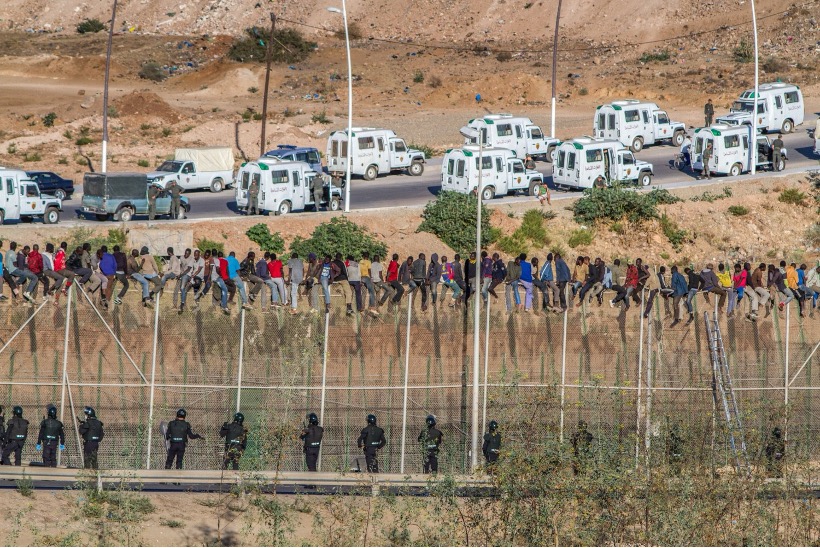
LING 300/A (Fall 2025): SOCIOLINGUISTICS
- Teacher: Eric Addis
- Teacher: JACQUELINE PETERS
LING 300/B (Winter 2025): SOCIOLINGUISTICS
- Teacher: Maha Darwish
- Teacher: JACQUELINE PETERS
MSCA 680/A (Fall 2025): FOUNDATIONS OF BTM
This course will provide graduate students with an overview of the business technology management (BTM)/Management Information Systems (MIS) literature in a range of research areas, exposing students to classic and modern BTM literature that has been influential in the development of the field. Foundational articles and more recent articles are reviewed to highlight the role/impact of digital technologies in organizations. In this seminar, students will 1) survey the literature in MIS/BTM and evaluate key concepts/theories, academic literature, and managerial issues, 2) synthesize journal articles in written and oral form, and identify major research and management themes within and across topics, 3) discuss the organizational and societal impacts of leveraging digital technologies in organizations, and 4) write a research paper for submission to a conference or a journal. This seminar will help students develop an understanding of the evolution of the BTM discipline and identify major research areas. The integrative coverage of topics provides students in various disciplines such as management information systems, management, marketing, and finance with the necessary knowledge to conduct conceptual and empirical research on inter-disciplinary topics related to the role of digital technologies in organizations.
For each session, we will explore recent articles in leading MIS/BTM journals (e.g., MIS Quarterly, Information Systems Research, and the Journal of Management Information Systems), leading management journals (e.g., Strategic Management Journal) and well-respected practitioner journals (e.g., Harvard Business Review, Sloan Management Review, and MIS Quarterly Executive). Each week between 3 and 5 articles are assigned. All articles can be accessed through the course website (i.e., Moodle). The course will follow a seminar format and will focus on the discussion of assigned readings.
- Teacher: TANYA GIANNELIA
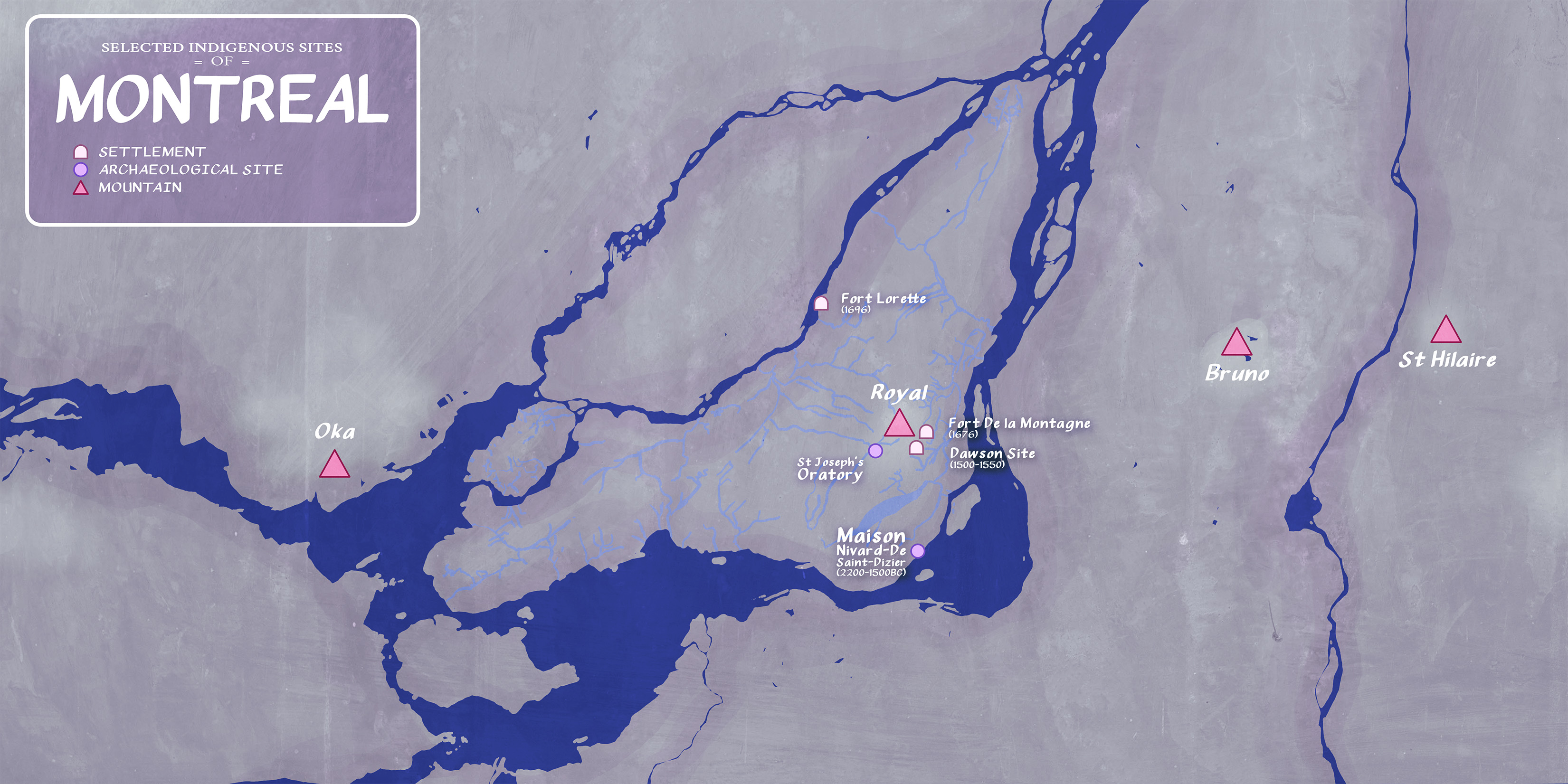
PERC 351/GA (Winter 2025): COMMUNITY ARTS:ART/ENGAGEMENT
This studio course introduces the art of engagement in theatre and performance creation practices, combining interdisciplinary art-making with regional, historical Indigenous context. Students gain skills and knowledge in areas such as when engaging Indigenous narratives.
The course includes practical explorations to create socially engaged theatre and performance, while sharing visual, symbolic, and language based knowledge, reflecting the historical Indigenous presence on the island. An introductory glance at the contemporary context for the Indigenous sites of significance and the current day urban archeological issues, will ground the site specific research, conducted through two local field trips.
- Teacher: ANGELA LOFT
PHIL 361 - Early Modern Philosophy II: 18th Century
Winter 2025
Instructor: Dr. Olivia Sultanescu
Email: olivia.sultanescu@concordia.ca
Office hours: Monday & Wednesday, 4:15 pm – 5:15 pm (My office is in the Gray Nuns building (GN), accessible through the classroom entrance located at 1175 Rue Saint-Mathieu, near Boulevard René-Lévesque.)
Class schedule: Monday & Wednesday 2:45 pm – 4:00 pm
Room: H 431
Course description
This course is an introduction to eighteenth-century European philosophy. The first part of the class is devoted to topics and questions pertaining to the distinctive ways in which philosophers of this period conceive of the nature of the mind and the possibility of knowing the world outside of it. We will examine the so-called theory of ideas, according to which the basic constituents of the mind are simple ideas, each of which is acquired through experience. On this picture, all mental activity can be accounted for in the light of operations on simple ideas. We discuss John Locke’s elaboration of this view, and we briefly explore George Berkeley’s response to Locke. We then move on to David Hume, the central figure of this course, whose project is to construct a fully naturalistic account of human nature. By scrutinizing the mental operations distinctive of the human mind, Hume tries to show that rational capacities play a lesser role in our engagement with the world than has been traditionally thought. We examine both the skeptical and the constructive phases of Hume’s philosophy. The second part of the class is devoted to a brief investigation of the question of the nature and origin of language. To what extent can the theory of ideas and the broader conception of the mind associated with it account for the possibility of communicating through meaningful utterances? We examine the views on language put forward by Locke, Jean Jacques Rousseau, and Johann Gottfried Herder. In the third and last part of the course, we turn to issues concerning morality and agency. Our central question, with which philosophers of the eighteenth century were deeply concerned, is what lies at the heart of morality: emotion, reason, or something else? We carefully examine Hume’s treatment to this question, and we end with a brief discussion of some responses to Hume.
- Teacher: OLIVIA SULTANESCU
- Teaching Assistant: Biyang Pan
POLI 301/A (Fall 2025): SOCIAL MOVEMENTS&PROTEST POL
- Teacher: MICHELLE BAERT
- Teacher: Joanne Downs
POLI 339/A (Fall 2025): QUEBEC POLITICS AND SOCIETY
- Teacher: SIMON BERTRAND
- Teacher: Joanne Downs
- Teaching Assistant: Felix Rogers
POLI 349/A (Fall 2025): POL&SOCIAL THEORY & THE CITY
- Teacher: Joanne Downs
- Teacher: TINA RUPCIC
- Teaching Assistant: Lusakumunu Mbangi
The study of public policy is concerned with politics and power, understanding how government decisions (and non-decisions) are made and how these decisions, in turn, shape social and political life. The question of who shapes policy and how is therefore critically important for students of public policy to analyze and debate. In this course, through a series of case studies, we will examine the role of advocacy groups in a range of campaigns with public policy implications at the provincial, federal and sometimes international levels. With an emphasis on the urban scale, we explore how groups take on collective projects and critically assess both the benefits and challenges advocacy groups bring to the policy process and to democratic life. Students are encouraged to pursue their own areas of policy interest through classroom discussions, additional readings, and written course work.
This course description is adapted from a syllabus designed by Prof. Frank Ohemeng. Some of his readings are included as optional, for those who would like to explore further.
At the end of the course, students are expected to:
· Identify and describe key concepts in the study of advocacy groups and public policy
· Understand something about how power works and how advocacy groups build counter-power.
· Appreciate how advocacy groups behave over time, and adjust strategies and tactics to changing circumstances
· Through the lens of case studies, know something about the strategies and tactics of advocacy groups, and be able to extrapolate how they attempt to shape public policy choices
· With an emphasis on the municipal level, learn something about Montreal groups and their history
· Develop skills in listening, reading, thinking, and assessment
· Communicate findings in written form
- Teacher: Joanne Downs
- Teacher: JASON PRINCE
- Teaching Assistant: Lily Campbell
POLI 412/BB (Winter 2025): COMPARATIVE SOCIAL POLICY
- Teacher: Joanne Downs
- Teacher: MARK PARADIS
POLI 429 (Winter 2025) - Political Socialization in Canadian and Comparative Perspectives
- Teacher: Joanne Downs
- Teacher: COLIN SCOTT
POLI 429/A (Fall 2025): POL SOCI IN CDN&COMP PERSPEC
- Teacher: Joanne Downs
- Teacher: COLIN SCOTT
POLI 683/A (Fall 2025): SPEC TOPICS IN P.P. & A.
Development Policy and Administration
This course provides an introduction to development policy and administration by focusing on a set of substantive issues. For purposes of this course, development policy and administration refer both to public policy and administration to promote various notions of social, economic, and administrative development, and to the development of policy and administration in low and middle-income countries.
This "edition" includes sections on development aid, the political economy of development, and climate change, including a session focused on energy transitions.
- Teacher: Joanne Downs
- Teacher: AMY POTEETE
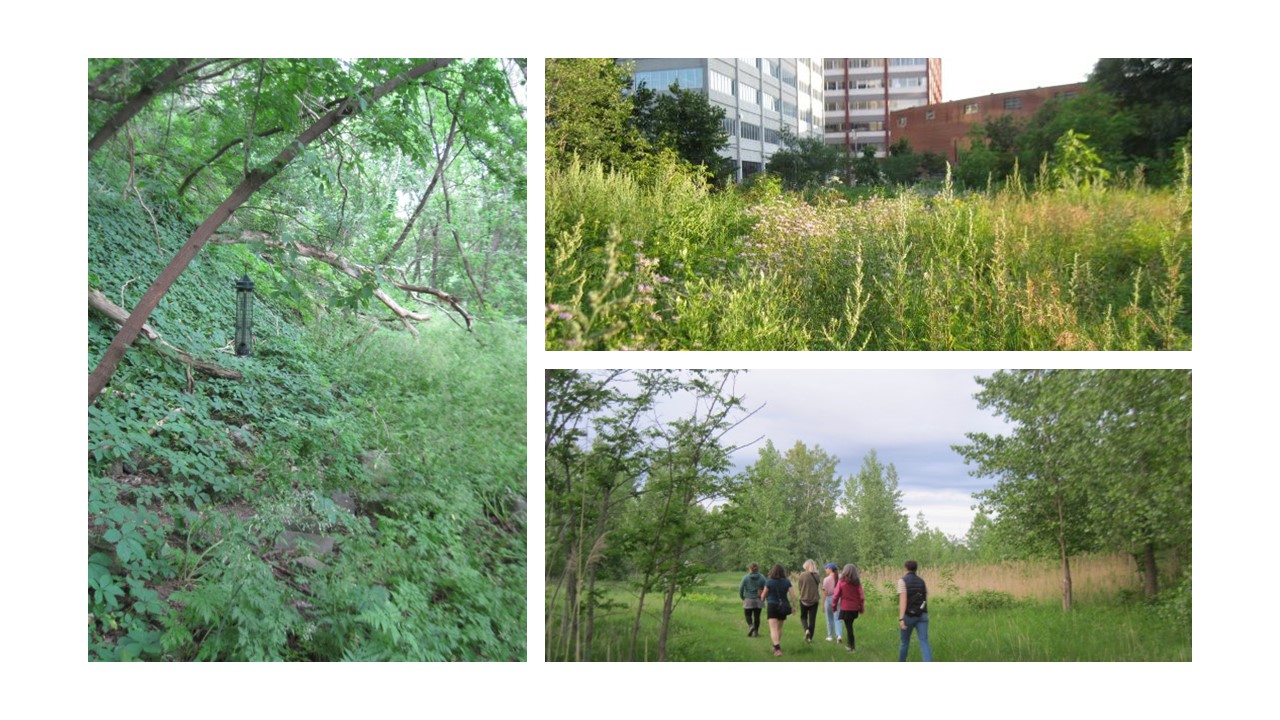
POLI 683/AA (Summer 2025): SPEC TOPICS IN P.P. & A.
This seminar explores social ecological and political economic issues related to informal urban spaces and strategies for conducting social research in these spaces. Informal green spaces that officials and investors often consider to be wastelands ripe for development are often treasured by urban residents. These spaces become entangled with their sense of place and community, offer respite from the heat and bustle of the city, and are perceived as providing habitat and refuges for biodiversity. Seminar sessions introduce participants to social ecological and political economic issues in informal urban spaces and strategies for conducting qualitative research in these settings. Lab sessions provide participants with practical experience with research techniques for studying these issues in three sites in Montreal: the Champ des Possibles in Mile End, the Falaise St. Jacques in NDG, and a complex of sites in Hochelaga (Boisé Vimont, Boisé Steinberg, and an area known simply as the friche, all near Parc Saint-Clément).
- Teacher: Joanne Downs
- Teacher: AMY POTEETE
PSYC 325/02 (Fall 2025): FUNDS OF SOCIAL PSYCHOLOGY
- Teacher: BRENDA CATHERINE HARVEY
PSYC 325/03 (Winter 2025): FUNDS OF SOCIAL PSYCHOLOGY
- Teacher: JAYSON SAN MIGUEL
- Non-editing teacher: MAXINE IANNUCCILLI

PSYC 325/04 (Winter 2025): FUNDAMENTALSS OF SOCIAL PSYCHOLOGY
This 3-credit course is intended to provide you with an overview of the main perspectives, theories, and research methodologies that typify social psychology. Social psychology is the scientific study of how people come to understand individuals, groups, and themselves as social entities. Social psychological processes influence how we perceive, evaluate, remember, and behave towards people. These processes shape, and are shaped by, our social expectations, social roles, social goals, and social interactions. Topics include impression formation, stereotyping and prejudice, and close relationships. As with any survey course, we will not cover every aspect of the field, nor will we be able to study any aspect in great depth. Rather, this course is intended to prepare you for more advanced study on topics in social psychology and related fields that are of interest to you.
- Teacher: DITA KUBIN
- Teaching Assistant: Erin Page
PSYC 325/51 (Fall 2025): FUNDS OF SOCIAL PSYCHOLOGY
- Teacher: BRENDA CATHERINE HARVEY
PSYC 425/03 (Winter 2025): CULTURE, DEVELOP & THE SELF
The official course description for LOYC 330 is as follows:
The objective of the course is for you to become familiar with the current theory and research on cultural variations in human development especially as they are related to the “self.”
- Teacher: WILLIAM BUKOWSKI
PSYC 428/01 (Winter 2025): SOCIAL & CULT ADV ISSUES
- Teacher: MAXINE IANNUCCILLI
- Teacher: ANDREW RYDER
PSYC 428/40 (Summer 2025): SOCIAL & CULT ADV ISSUES
Topic: Science literacy and writing in the age of misinformation
- Teacher: SERENA BIANCHI

RELI 312/A (Winter 2025): JUSTICE & SOCIAL CONFLICT
- Teacher: MARCEL PARENT
- Teaching Assistant: Helen Apesos
- Teaching Assistant: Autumn Banks

RELI 312/A (Fall 2025): JUSTICE & SOCIAL CONFLICT
- Teacher: MARCEL PARENT
- Teaching Assistant: Elizabeth Dugu
- Teaching Assistant: Jason Papagiannis
RELI 6007/A (Fall 2025): REGIONAL & INTERCULTURAL STUDIES: RELIGION AND POLITICS IN ASIA
Abstract
This seminar is designed to explore the relationships (historical, socio-cultural, economics, and others) between religion and politics. It consists in exploratory readings and discussions on different themes such as institutionalization, sponsorship, contestation, rulership, law, class, and others. The goal is to examine the various aspects of human endeavours and see how religion, beliefs, and religious practices shape and modify group and individual behaviors. What are the functions of religion in society? What are political power and religious power? What are their modus operandi? How does religion negotiate with politics? Which one of these dominates? How? When? And why? The class will consist in discussion of key readings together with students’ presentations on their own research, together with critical presentation of some readings and responses.
This particular course is designed to explore the two models of governance that dominate Asia since at least the turn of the first millennium.
Rationale
The objective of this course is to examine the Confucian model and the Indian Dharmasastra models that were exported respectively to Japan, Vietnam and Korea (China), and to Burma, Thailand, Cambodia (Kmer), and Indonesia from India. Our goal is to make the student familiar with the cultural background which provided the ideological and administrative basis supporting the creation of some pre-modern Asian polities. Many of these longstanding attitudes continue to be sustained with regard to ‘religion’ which does not recognizes the post-modern ways of Western paradigm and concepts. The relationship between state and supported religious institutions (such as state cults, Buddhism, and Indian Saivism for instance) versus religious movements that actively opposed established governments or other competing politically motivated religious groups (Catholic Christianity in China, Sunni Islam in Indonesia, Buddhist reactionary movements in Burma, and fundamentalist Hinduism in India). Although the areas covered is rather wide and diverse, this course will serve to further research based on different regions of Asia. Regions and time periods will vary according to the instructor’s speciality.
Format
This class is for upper undergraduates and graduate students. Therefore, it follows the seminar format where students will actively engage in research and critical appraisals of the readings, and in-class discussions. Each student will engage in research on one's field of inquiry (ex.: political ideology; religion and sponsorships; theology and political debates; divine right to rule; institutionalisation of religion; political models and ideological/theological/religious worldviews, etc.). During this class, students will complete set tasks relating to their research paper (ex.: topic; provisionary title; abstract; bibliography; methodology, etc.) and will participate in the discussions on the readings and in-class presentations. Participation is mandatory. No usage of AI is allowed in the writings of research papers, bibliographies, critical reports, and other assignments.
- Teacher: MARC DESJARDINS

Social Debates and Issues in Public Affairs and Public Policy
- Teacher: ANNA SHEFTEL
- Teaching Assistant: SKYE MIECHKOTA
This course examines the historical, political, and social dimensions of immigration policies in Quebec and Canada. It explores the evolution of immigration policy from pre-Confederation to contemporary times, highlighting the interplay of national and provincial interests, especially Quebec’s unique approach to immigration. The course addresses critical issues such as multiculturalism and integration models, the role public opinion in shaping immigration policies, and growing contemporary concerns over the capacity of Canada and Quebec to integrate newcomers, encouraging students to analyze the impacts of immigration on Canadian society.
- Teacher: SIMON-PIERRE LACASSE
- Teaching Assistant: Murad Sharaf

Community Organizing 101
This course focuses on understanding power, context and agency, engaging in critical social analysis and developing practical skills required in community organizing. The course explores popular education in community mobilization and collective action, and prepares students to run a successful strategic campaign, including identifying and analyzing targets, tactics, allies and potential opponents.
This course is designed to give students the opportunity to deepen their knowledge of social transformation strategies, and above all to equip themselves to apply them. Focusing on practice and popular education, the pedagogical approach enables students not only to acquire knowledge and skills, but also to equip themselves to pass them on to others in the field. A dynamic, interactive learning environment is created using the flipped classroom. This pedagogical model allows maximum classroom time to be devoted to exercises, discussions and projects.
Objectives:
« Discuss the oppositional approach to community organizing
« Explain power, interests, and balance of struggle
« Analyze a strategic campaign to obtain a demand based on an analysis of power dynamics
« Discuss popular education pedagogy
« Use the basic elements of Socratic dialogue to better understand the course material and practice sharing conversational space in a group.
- Teacher: ANNA KRUZYNSKI
- Non-editing teacher: ALICIA CUNDELL
- Teaching Assistant: MICHELLE DUCHESNEAU

SCPA 450/A (Winter 2025):
The aim of this course is to explore the increasing reach of neoliberalism as a global ecological phenomenon. Neoliberalism is defined as the privatization of the public sphere, deregulation of the private sector, lowering of income and corporate taxes, the insertion of barriers for labour organizing, and induced scarcity in spending for public services (Naomi Klein, 2014). Global capitalism has come to reflect the hegemony of the Washington Consensus - a set of 10 economic policy prescriptions promoting free-market policies, including trade liberalization and fiscal and monetary reform among others. It also reflects a “There is No Alternative” (TINA) framing, squashing the possibility of alternative social systems and alternative worldmaking visions. As an all-pervasive modus operandi of human interaction with each other and with the living Earth, capitalism is an ecological system of its own. Through showcasing the premise of global(ized) capitalism and its regional flavours, the course will also touch on the response of collective movements for social justice, responding to the social and environmental fallout of a world order that precludes the possibility of alternatives. We will explore global justice movements in the areas of migration, labour, climate, access to land, and food policy, among others. Finally, this course will link the fallout of global capitalism to the rise of far-right populist movements that are both a consequence of globalized neoliberalism and aim to impose an authoritarian neoliberalism that silences dissent and opposition to the TINA frame.
- Teacher: VIJAY KOLINJIVADI

This course focuses on understanding power, context and agency, engaging in critical social analysis and developing practical skills required in community organizing. It explores popular education in community mobilization and collective action, and prepares students to run a successful strategic campaign, including identifying and analyzing targets, tactics, allies and potential opponents.
This course is designed to give students the opportunity to deepen their knowledge of social transformation strategies, and above all to equip themselves to apply them. Focusing on practice and popular education, the pedagogical approach enables students not only to acquire knowledge and skills, but also to equip themselves to pass them on to others in the field. A dynamic, interactive learning environment is created using the flipped classroom. This pedagogical model allows maximum classroom time to be devoted to exercises, discussions and projects
- Teacher: ANNA KRUZYNSKI
- Teaching Assistant: MICHELLE DUCHESNEAU
SOCI 203/A (Fall 2025): INTRODUCTION TO SOCIETY
- Teacher: DANIEL DAGENAIS
- Teaching Assistant: Hannah Grover
- Teaching Assistant: Amrita Gurung
- Teaching Assistant: Igbekele Kuti
- Teaching Assistant: Laura Lombardo
- Teaching Assistant: Orlando Giulio Nicoletti
- Teaching Assistant: Tea Vashakmadze
SOCI 203/AA (Winter 2025): INTRODUCTION TO SOCIETY
- Teacher: BARBARA RUTTENBERG
SOCI 203/B (Winter 2025): INTRODUCTION TO SOCIETY
- Teacher: BARBARA RUTTENBERG
- Teacher: AARON H. BRAUER
- Teaching Assistant: KATELYND CAMPO
SOCI 212/BB (Fall 2025): STATISTICS I
- Teacher: AARON H. BRAUER
- Teaching Assistant: Leila Chung Mui Cheung
SOCI 213/A (Fall 2025): STATISTICS II
- Teacher: AARON H. BRAUER
- Teaching Assistant: ISABELLA GALLANT
SOCI 213/B (Winter 2024): STATISTICS II
- Teacher: AARON H. BRAUER
- Teaching Assistant: MOHSEN MONJI
- Teaching Assistant: Mohsen Monji
SOCI 213/B (Winter 2025): STATISTICS II
- Teacher: AARON H. BRAUER
- Teaching Assistant: Ashton Turcotte
SOCI 213/BB (Winter 2025): STATISTICS II
- Teacher: MOHAMAD-AHED HINDAWI
SOCI 213/C (Winter 2025): STATISTICS II
- Teacher: MOHAMAD-AHED HINDAWI
SOCI 213/CC (Winter 2025): STATISTICS II
- Teacher: HUSSEIN MERHI
- Teaching Assistant: Mozhdeh Babagoli
SOCI 221/A (Fall 2025) — DIGITAL CULTURE
This course offers a critical examination of the role of electronic communication, information technology, and the Internet in public culture and the organization of social behaviour and interaction.
- Teacher: INGRID BEJERMAN
SOCI 221/B (Winter 2025): DIGITAL CULTURE
Description: This course offers a critical examination of the role of electronic communication, information technology, and the Internet in public culture and the organization of social behaviour and interaction.
Instructor: Ingrid Bejerman, Ph.D.
- Teacher: INGRID BEJERMAN
SOCI 225/A (Fall 2025): SOCIOLOGY THROUGH FILM
- Teacher: SONIA HAMEL
SOCI 225/B (Winter 2025): SOCIOLOGY THROUGH FILM
- Teacher: SONIA HAMEL

SOCI 230/A (Fall 2025): Race & Ethnic Relations
- Teacher: ALEJANDRO HERNANDEZ RAMIREZ
- Teaching Assistant: Logan Léger
SOCI 230/B (Winter 2025): RACE & ETHNIC RELATIONS
- Teacher: HEATHER FORD
- Teaching Assistant: DESTINY MARSHALL-HAMILTON
SOCI 230/C (Winter 2025): RACE & ETHNIC RELATIONS
- Teacher: HEATHER FORD

SOCI 230/ ANTH 230 / BLST 230 (Summer 2025): Race and Ethnic Relations
- Teacher: ALEJANDRO HERNANDEZ RAMIREZ
- Teaching Assistant: Benin Al-Manaihil
SOCI 244/A (Winter 2025): SOCIOLOGY OF LEISURE
- Teacher: BARBARA RUTTENBERG
SOCI 250/B (Winter 2025): SOCIOLOGY OF CULTURE
This course provides an introduction to theory and research on the sociology of culture, the organization and dynamics of cultural systems, cultural production and consumption, subcultures, mass culture, popular culture, and strategies of interpretive analysis for the study of culture.
Instructor: Ingrid Bejerman, Ph.D.
- Teacher: INGRID BEJERMAN

SOCI 261/AA (Winter 2025): SOCIAL PROBLEMS
- Teacher: ABU SALEH MOHAMMAD SOWAD
- Teacher: HEATHER FORD
SOCI 275/A (Fall 2025): SELF AND SOCIETY
- Teacher: FRANCINE TREMBLAY
SOCI 275/B (Winter 2025): SELF AND SOCIETY
- Teacher: Ahmad Reza Mohammadpouryazdi
SOCI 276/A (Fall 2025): GENDER AND SOCIETY
- Teacher: OCEANE MAITE JASOR
SOCI 276/B (Winter 2025): GENDER AND SOCIETY
- Teacher: Alia Nurmohamed
SOCI 284/A (Winter 2025): RISK SOCI & SOCIAL CONTROL
- Teacher: MARTIN FRENCH
- Teaching Assistant: SPENCER KETT
SOCI 284/A (Fall 2025): RISK SOCI & SOCIAL CONTROL
- Teacher: ERIN ELIZABETH LYNCH
- Teaching Assistant: Bugra Yalin
SOCI 298/A (Fall 2025): SELECTED TOPICS IN SOCIOLOGY
- Teacher: ROGER R. MAC LEAN
SOCI 300/A (Fall/Winter 2025-26): CLASSICAL SOCIAL THEORY
- Teacher: CHRISTOPHER HURL
- Teaching Assistant: MERT ERTUBAY
- Teaching Assistant: Mert Ertubay
- Teaching Assistant: ÉTIENNE GAGNÉ
- Teaching Assistant: Étienne Gagné
- Teaching Assistant: Sarah Grant
- Teaching Assistant: ELHAM MOHTASHAMZADEH
- Teaching Assistant: Elham Mohtashamzadeh
- Teaching Assistant: Alia Nurmohamed
- Teaching Assistant: Alia Nurmohamed
SOCI 300/BB (Fall/Winter 2024-25): CLASSICAL SOCIAL THEORY
- Teacher: MATTHEW UNGER
- Teaching Assistant: Jamilah Dei-Sharpe
- Teaching Assistant: Amrita Gurung
- Teaching Assistant: Mohsen Monji
- Teaching Assistant: Elena Rowan
- Teaching Assistant: Emanuelle Stein
SOCI 300/BB (Fall/Winter 2025-26): CLASSICAL SOCIAL THEORY
- Teacher: MATTHEW UNGER

SOCI 310/A (Fall 2025): Research Methods
- Teacher: ALEJANDRO HERNANDEZ RAMIREZ
- Teaching Assistant: Ciara Patten
SOCI 310/B (Winter 2025): RESEARCH METHODS
- Teacher: ROGER R. MAC LEAN

SOCI 310/B (Fall 2025): RESEARCH METHODS
- Teacher: ALEJANDRO HERNANDEZ RAMIREZ
- Teaching Assistant: Resat Amin

SOCI 310/CC (Winter 2025): Research Methods
- Teacher: ALEJANDRO HERNANDEZ RAMIREZ
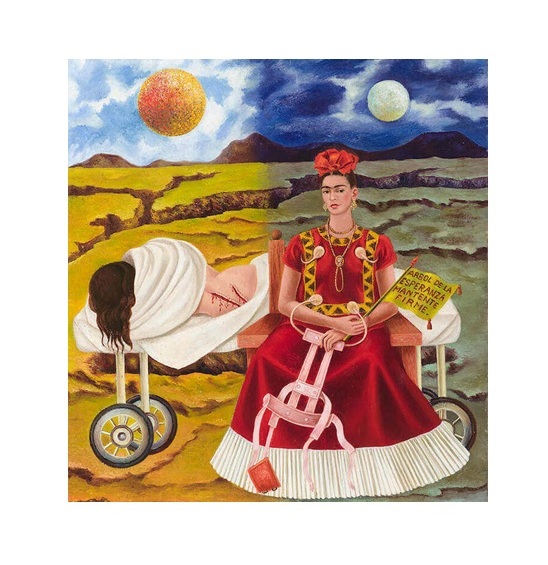
This course examines health, illness and medicine as socio‑cultural, rather than strictly biomedical, phenomena. Topics may include the sick role; stigma; the experience of illness; the concept of disease and disease classification; the politics of disease; medicalization of gender, “race,” and disability; and the Canadian health‑care system, including Big Pharma and Complementary and Alternative Medicine.
- Teacher: NIMA JANGOUK
SOCI 323/A (Fall 2025): ECON TRANS/CAP SOCIETY
- Teacher: CHRISTOPHER HURL
- Teaching Assistant: Simon Parent
SOCI 329/EC (Winter 2025): SEXUAL LABOUR AND SOCIETY
- Teacher: FRANCINE TREMBLAY
- Teaching Assistant: Billy Gélinas
- Teaching Assistant: Atefeh Heydari
- Teaching Assistant: Fatine Lfarouk
- Teaching Assistant: Tristan Nkoghe
SOCI 333/A (Winter 2025): POLITICAL SOCIOLOGY
- Teacher: CLARA KHUDAVERDIAN
SOCI 336/A (Winter 2025): COLLECTIVE ACTION
- Teacher: FRANCINE TREMBLAY
SOCI 353/A (Winter 2025): QUESTIONING COMMUNITY
- Teacher: Jillian Dawn Nauss
SOCI 363/BB (Winter 2025): LAW AND SOCIETY
- Teacher: JOHN HOWES
- Teaching Assistant: Valeriia Kolomietc
- Teaching Assistant: Savannah Wilde
SOCI 375/A (Fall 2025): SOCIAL CONSTRUC. SEXUALITIES
This course explores how sexual identities, behaviours, and norms are socially constructed. In this class, we will question the historical, cultural, and political forces that shape sexuality, with a focus on the intersection of race, class, gender, and sexuality in diverse global contexts. The course will critically engage with both dominant and marginalized sexual narratives, theories of sexual identities, and the ways in which sexuality intersects with power and privilege. Through interdisciplinary readings and critical discussion, students will analyze how norms around sexuality are produced, challenged, and experienced across different social contexts.
- Teacher: ZULEYHA IZIN
SOCI 375/AA (Winter 2025): SOCIAL CONSTRUC. SEXUALITIES
- Teacher: A. ALEXANDER ANTONOPOULOS
- Teaching Assistant: RAISSA KILLORAN
SOCI 376/A (Fall 2025): SOCIALIZATION
- Teacher: PENELOPE PASDERMAJIAN
- Teacher: DANIEL DAGENAIS
SOCI 380/AA (Summer 2025): CONTEMP. ISSUES HUMAN RIGHTS
- Teacher: ELENI PANAGIOTARAKOU
SOCI 383/A (Winter 2025): CONSUMER SOCIETY
- Teacher: JEAN-PHILIPPE WARREN
- Teaching Assistant: Angela Montanaro
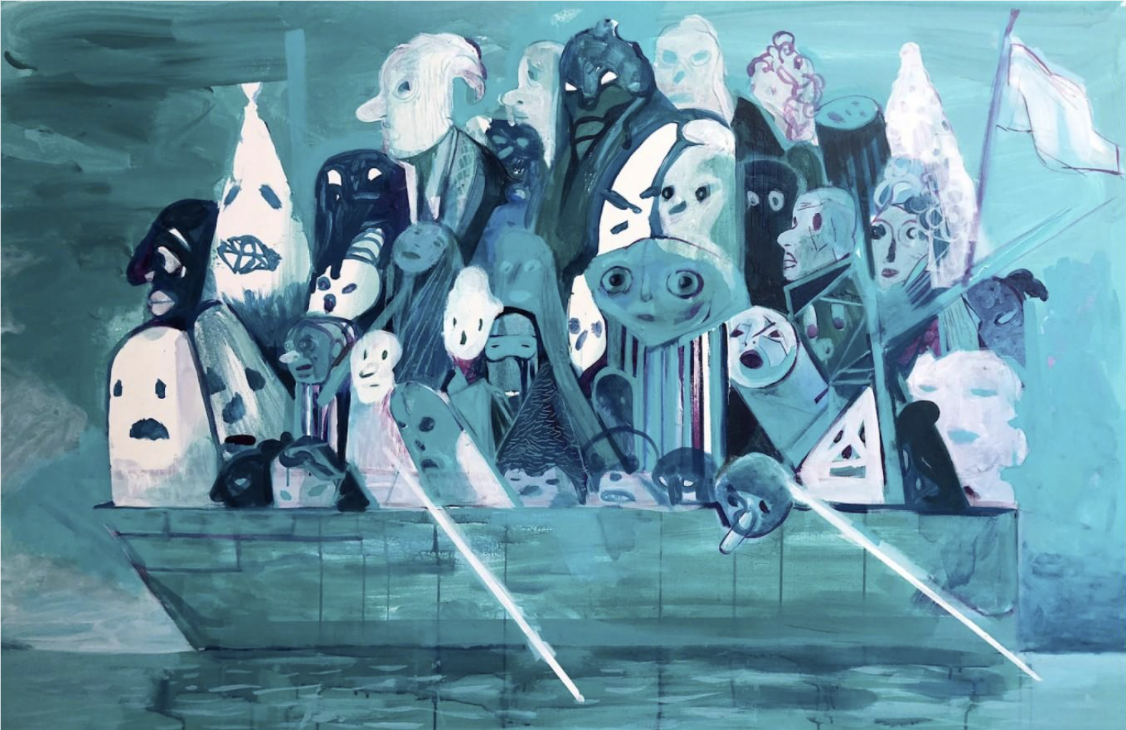
SOCI 398/A (Fall 2025): SELECTED TOPICS IN SOCIOLOGY
- Teacher: DENIZ DURUIZ
- Teaching Assistant: Nicholas Contreras
- Teacher: SATOSHI IKEDA
SOCI 402/A (Fall 2025): CONTEMPORARY SOCIOL. THEORY
- Teacher: PENELOPE PASDERMAJIAN
SOCI 402/B (Winter 2025): CONTEMPORARY SOCIOL. THEORY
- Teacher: JEAN-PHILIPPE WARREN
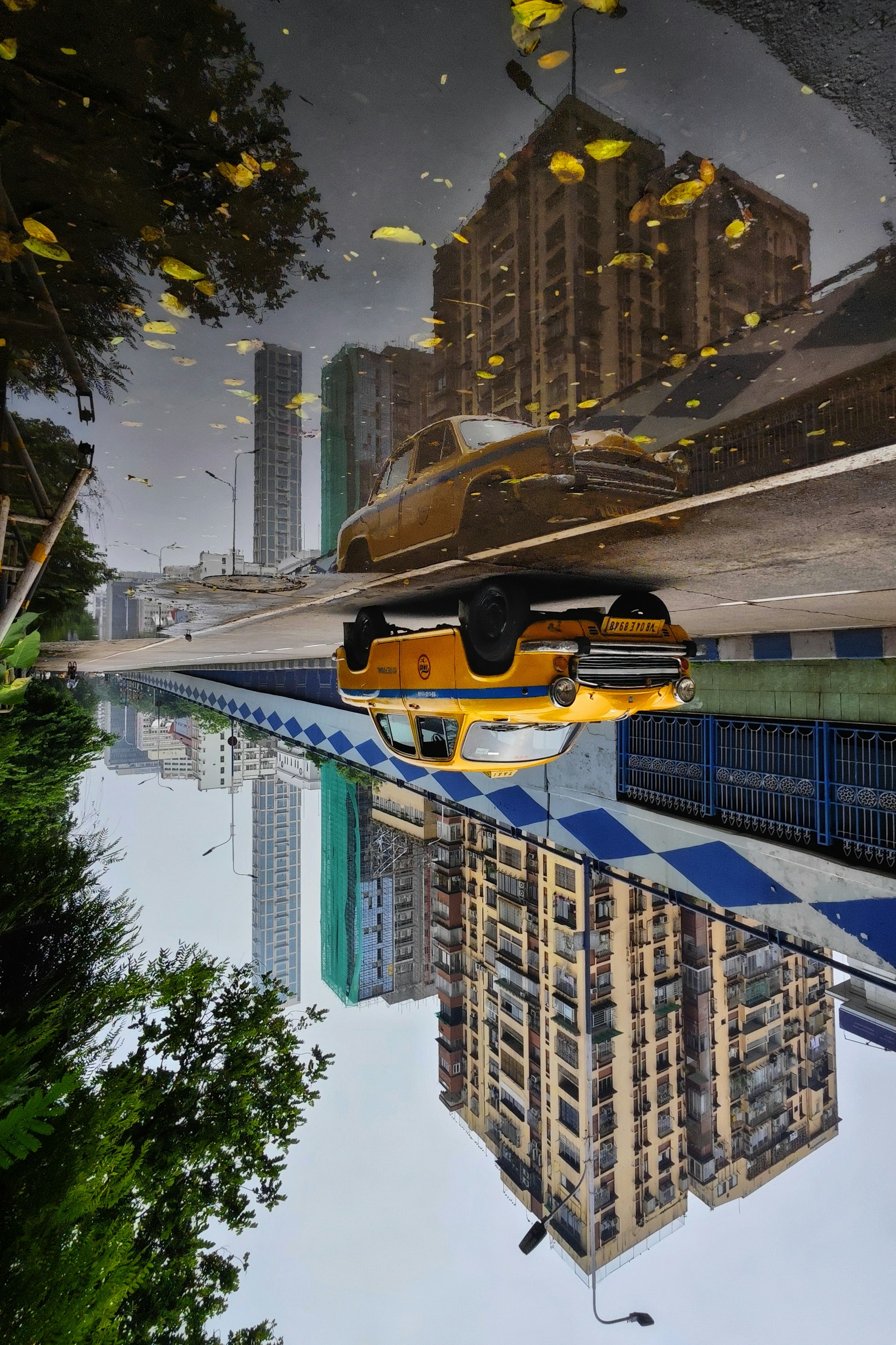
SOCI 403/AA (Fall 2025): Contemporary Cultural Theory
- Teacher: ALEJANDRO HERNANDEZ RAMIREZ
SOCI 404/A (Winter 2025): SOCIOLOGY OF LITERATURE
- Teacher: VALERIE DE COURVILLE NICOL
SOCI 409/A (Fall/Winter 2024-25): HONOURS SEMINAR
- Teacher: SUSIE BREIER
- Teacher: SHELLEY ZIPORA REUTER
SOCI 409/A (Fall/Winter 2025-26): HONOURS SEMINAR
- Teacher: SUSIE BREIER
- Teacher: SHELLEY ZIPORA REUTER
SOCI 410/A (Fall/Winter 2024-25): RESEARCH DESIGN & ANALYSIS
- Teacher: MARIE-PIER JOLY
- Teacher: TITE NGOUMOU
SOCI 410/A (Fall/Winter 2025-26): RESEARCH DESIGN & ANALYSIS
- Teacher: MARIE-PIER JOLY
SOCI 421/A (Fall 2025): SOCIOLOGY OF EMOTIONS
- Teacher: VALERIE DE COURVILLE NICOL
SOCI 424/AA (Fall 2025): APPLIED SOCIAL STATISTICS
SOCI 428/A (Winter 2025): CAPITALISM AND CRISIS
- Teacher: BEVERLEY BEST
SOCI 429/A (Fall 2025): THE THOUGHT OF KARL MARX
- Teacher: BEVERLEY BEST
- Teacher: DANIEL DAGENAIS
- Teacher: MICHAEL ROSENBERG
SOCI 434/A (Winter 2025): SOCIOLOGY OF SUICIDE
- Teacher: DANIEL DAGENAIS
SOCI 441/A (Winter 2025): MATERIAL CULTURE
- Teacher: PENELOPE PASDERMAJIAN
SOCI 441/B (Fall 2025): MATERIAL CULTURE
- Teacher: PENELOPE PASDERMAJIAN
- Teacher: SATOSHI IKEDA
SOCI 453/A (Winter 2025): MEDIA SOCIO & JOURNALISM
- Teacher: LAURA PANNEKOEK
SOCI 453/A (Fall 2025) — MEDIA SOCIOLOGY & JOURNALISM
This course invites students to participate in developing a media sociology that situates journalism in broad social‑historical contexts. In addition to an introduction to media sociologies, the course explores current changes in journalism practices and the impact of digital culture on information, news and public life.
- Teacher: INGRID BEJERMAN
SOCI 460/A (Winter 2025): SOCIOLOGY OF FEAR AND RISK
- Teacher: VALERIE DE COURVILLE NICOL
SOCI 464/A (Winter 2025): ADV STUDIES IN LAW & SOCIETY
- Teacher: ERIN ELIZABETH LYNCH
SOCI 474/AA (Summer 2025): THE BODY SOCIAL
- Teacher: CONSTANCE V. CLASSEN
SOCI 474/AA (Fall 2025): THE BODY SOCIAL
- Teacher: CONSTANCE V. CLASSEN
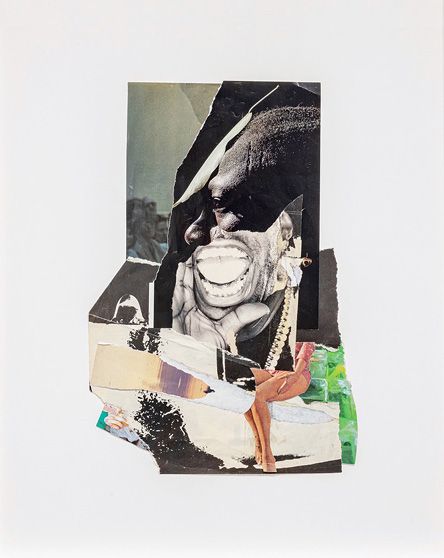

SOCI 484/A (Winter, 2022): SURVEILLANCE STUDIES
- Teacher: FIONA JEFFRIES

SOCI 498/B (Winter 2025): ADV TOPICS IN SOCI & ANTH
- Teacher: DENIZ DURUIZ
SOCI 498/D (Fall 2025): ADV TOPICS IN SOCI & ANTH
- Teacher: OCEANE MAITE JASOR
SOCI 498/G (Fall 2025): ADV TOPICS IN SOCI & ANTH
- Teacher: JEAN-PHILIPPE WARREN
SOCI 602/A (Winter 2025): ISSUES/CLASSICAL SOCI THEORY
- Teacher: BEVERLEY BEST
SOCI 603/A (Fall 2025): ISSUES/CONTEMPOR SOCI THEORY
- Teacher: VALERIE DE COURVILLE NICOL
SOCI 612/A (Fall 2025): QUANT. RES. DESIGN & METHODS
- Teacher: SYLVIA KAIROUZ
SOCI 613/A (Winter 2025): QUAL. RES. DESIGN & METHODS
- Teacher: KATE DE MEDEIROS
SOCI 644/A (Fall, 2020): SOCIOLOGY OF THE BODY
- Teacher: MARC ETIENNE LAFRANCE
- Teaching Assistant: Samantha Ilacqua
SOCI 660/A (Fall/Winter 2024-25): PROF DEVELOPMENT SEMINAR
- Teacher: NAYROUZ ABU HATOUM
- Teacher: MARK WATSON
SOCI 660/A (Fall/Winter 2025-26): PROF DEVELOPMENT SEMINAR
- Teacher: MARTIN FRENCH
STAT 287/GA (Winter 2025): STATISTICS LAB I
The objective of this lab is to help prepare for Preliminary Actuarial Exam P (Probability) of the Society of Actuaries and the identical Exam 1 of the Casualty Actuarial Society.
This lab first develops knowledge of the fundamental probability tools for quantitatively assessing risk. The application of these tools to problems encountered in actuarial science is then emphasized through problem-solving sessions.
More advanced probability and supporting calculus techniques in actuarial science are also studied in this lab.
- Teacher: ETHAN WONG
WSDB 310/A (Fall 2025): FEMINISM COMEDY & SOCIAL CHANG
- Teacher: GADA MAHROUSE
WSDB 385/A (Winter 2025): INTRO TO TRANS STUDIES:
The first part of the course reviews the emergence of Trans Studies: what came before it and what distinguished it from other forms of knowledge about trans people. Also reviewed is Trans Studies’ theoretical and methodological heritage, including the ways in which Feminism and Queer Theory have shaped the field’s interests. The second part of the course evaluates Trans Studies in action by looking at selected aspects of some trans people’s lives: their history, community building, access to health care and social services, criminalization, and self‑narration. 3 credits.
Course pre-requisite(s): WSDB 290, WSDB 291, WSDB 292. Students must complete 15 credits prior to enrolling. If prerequisites are not satisfied, permission of the Institute is required.
- Teacher: CALEV LITVACK
